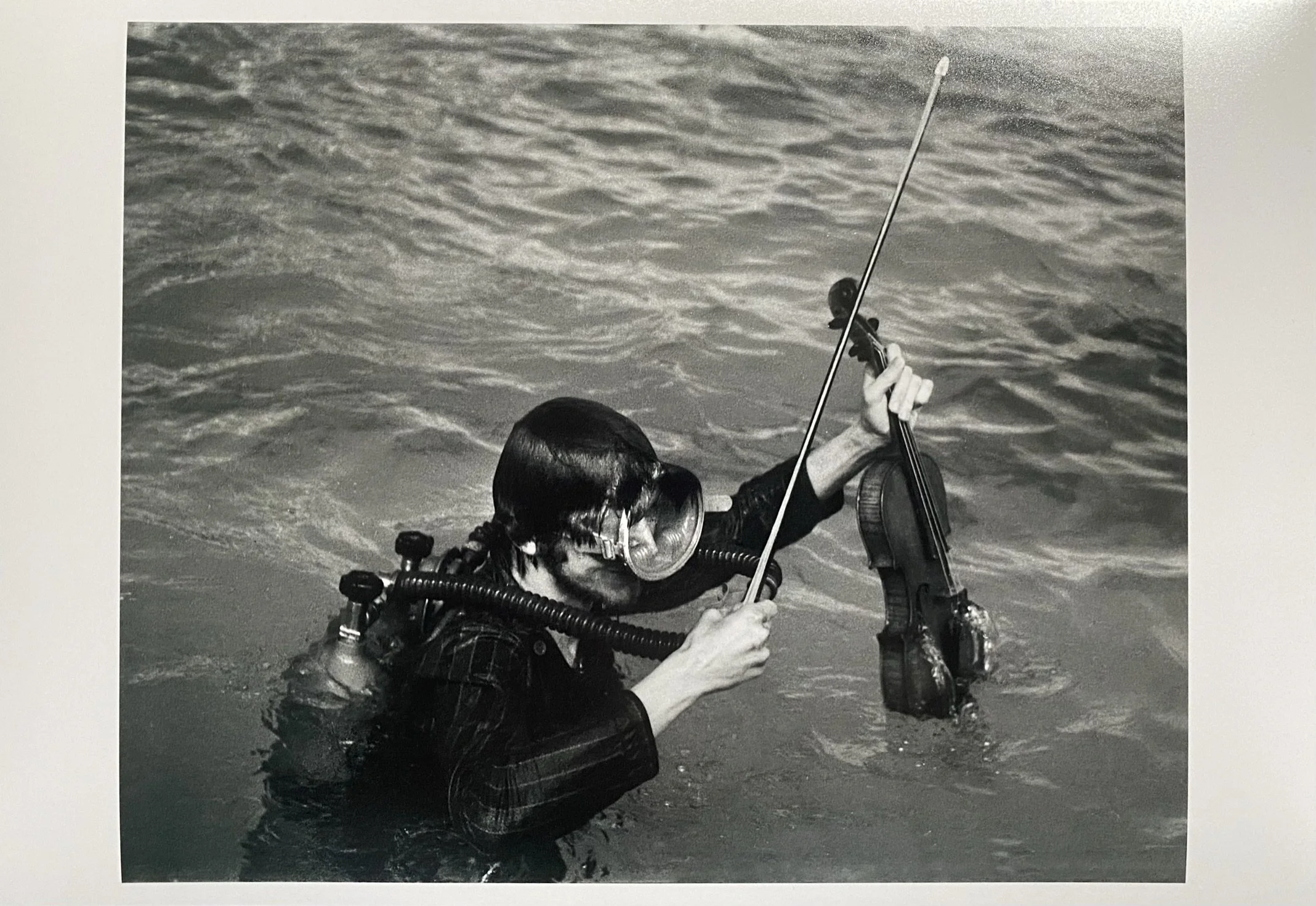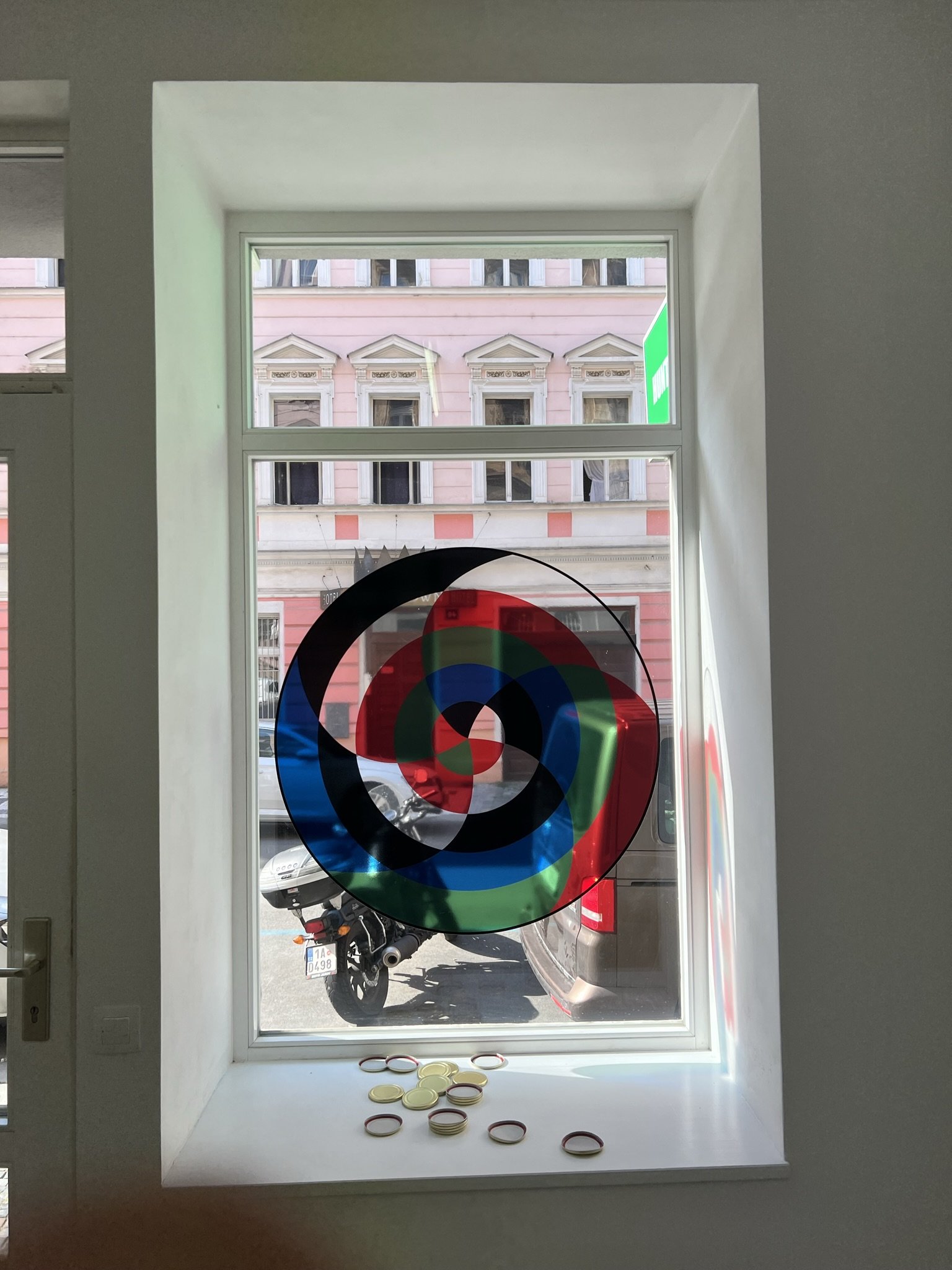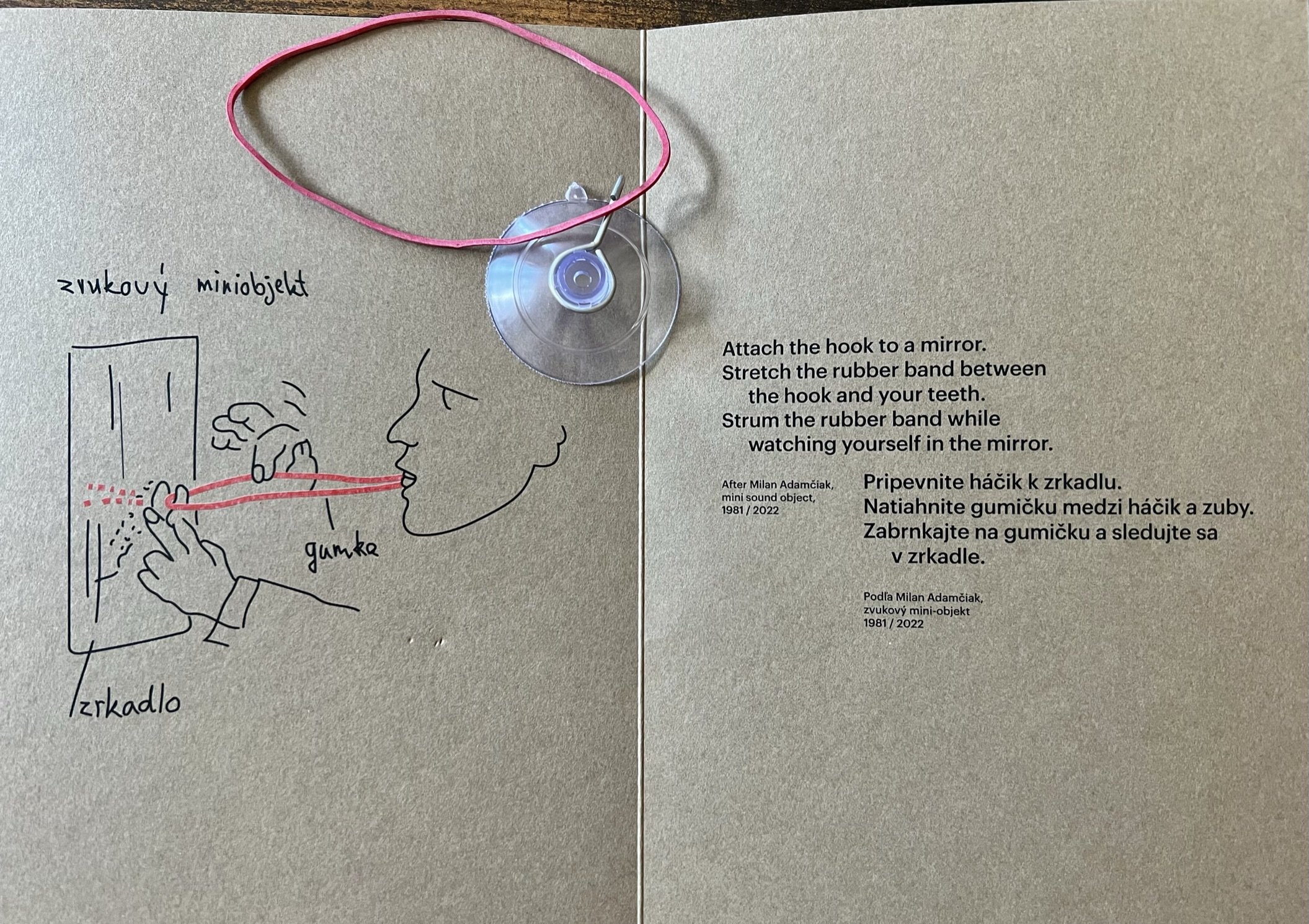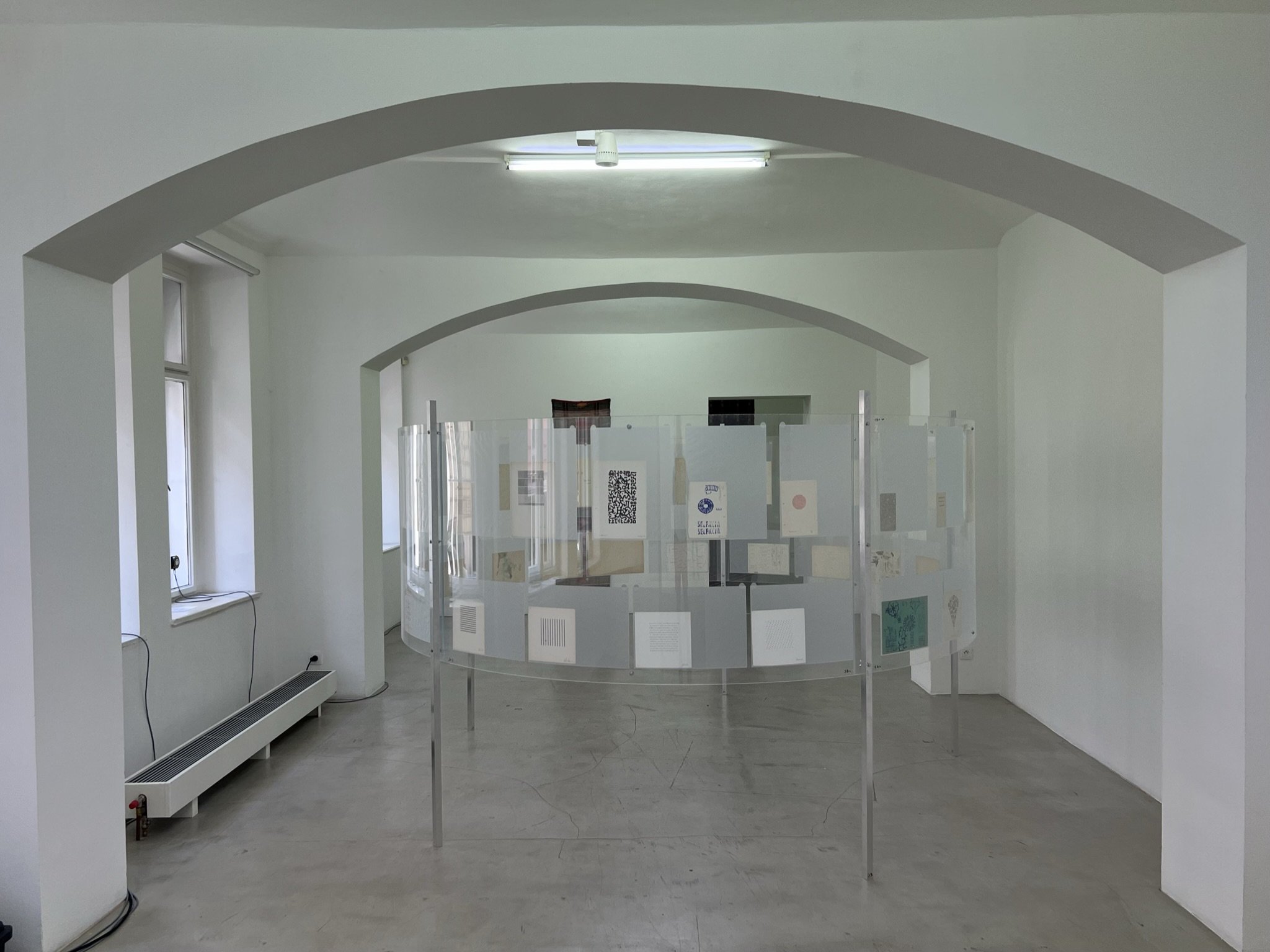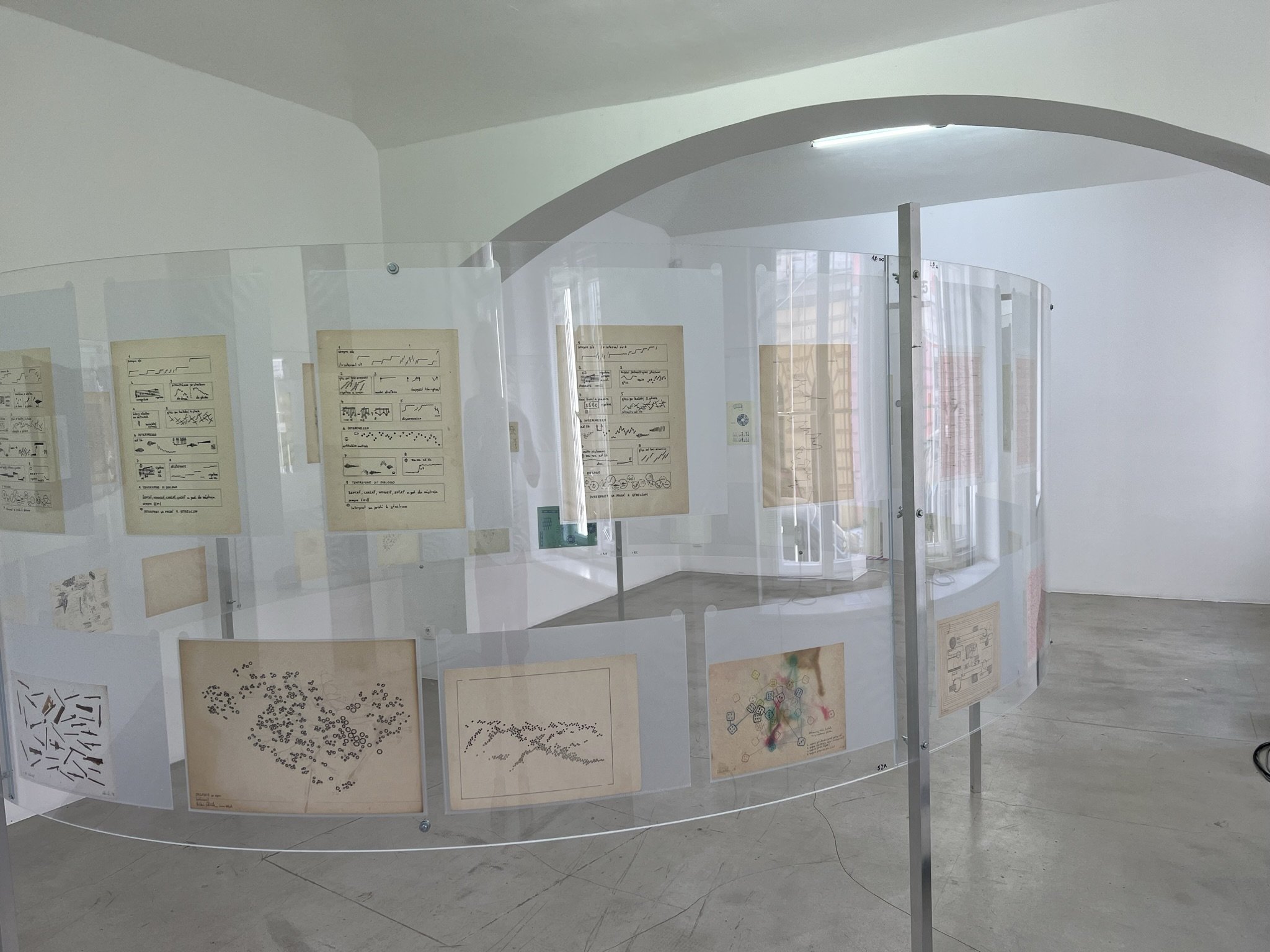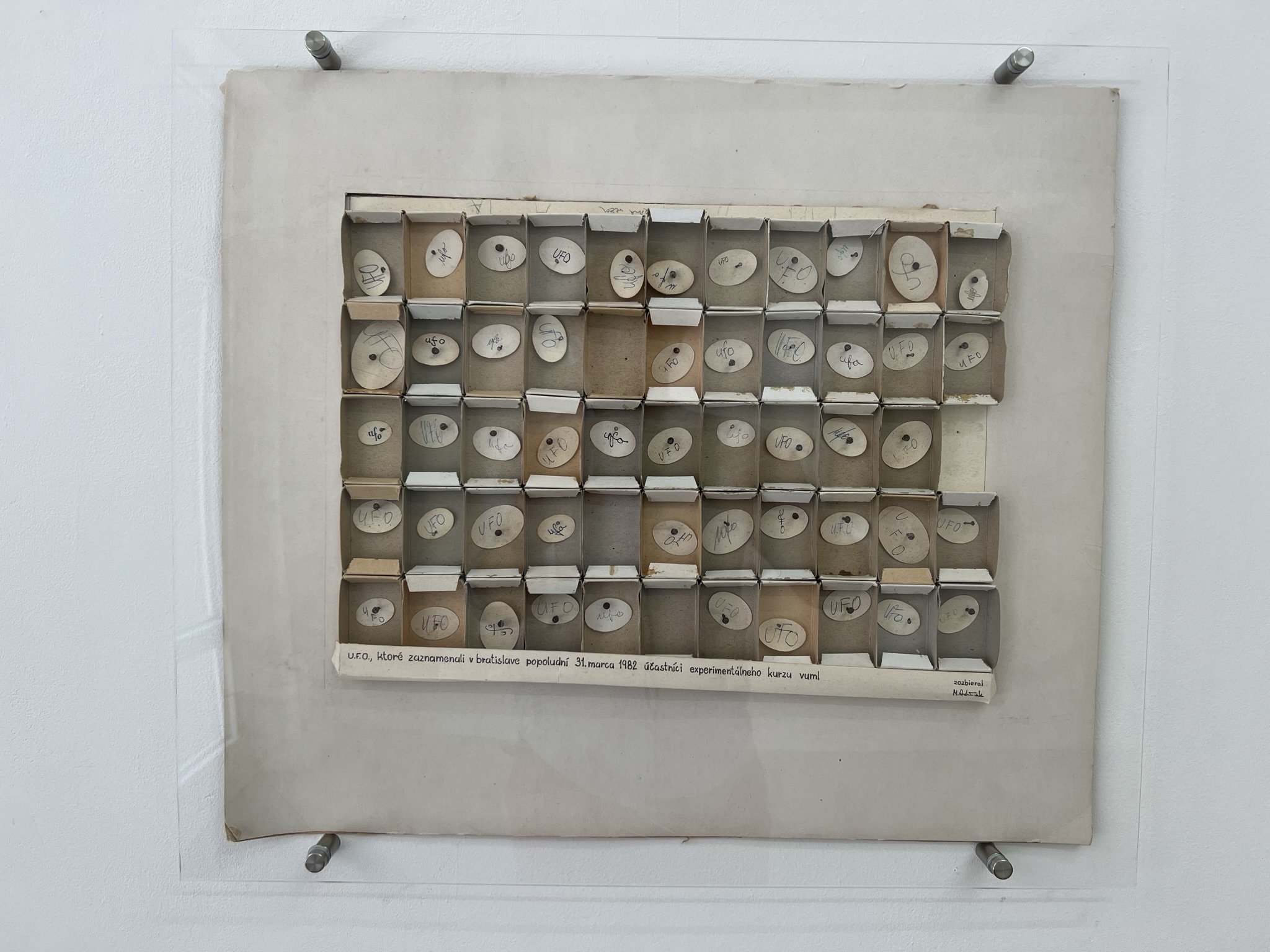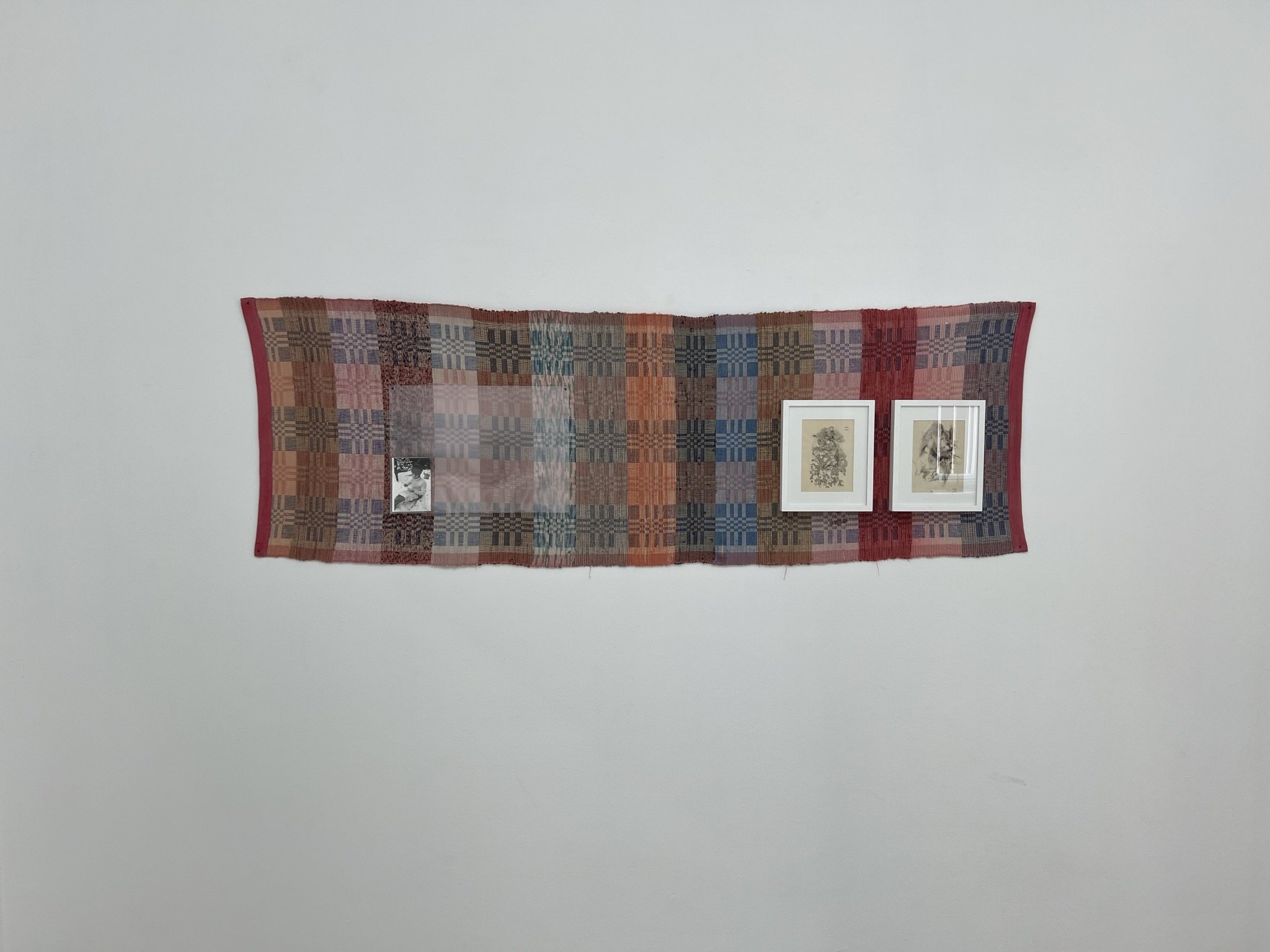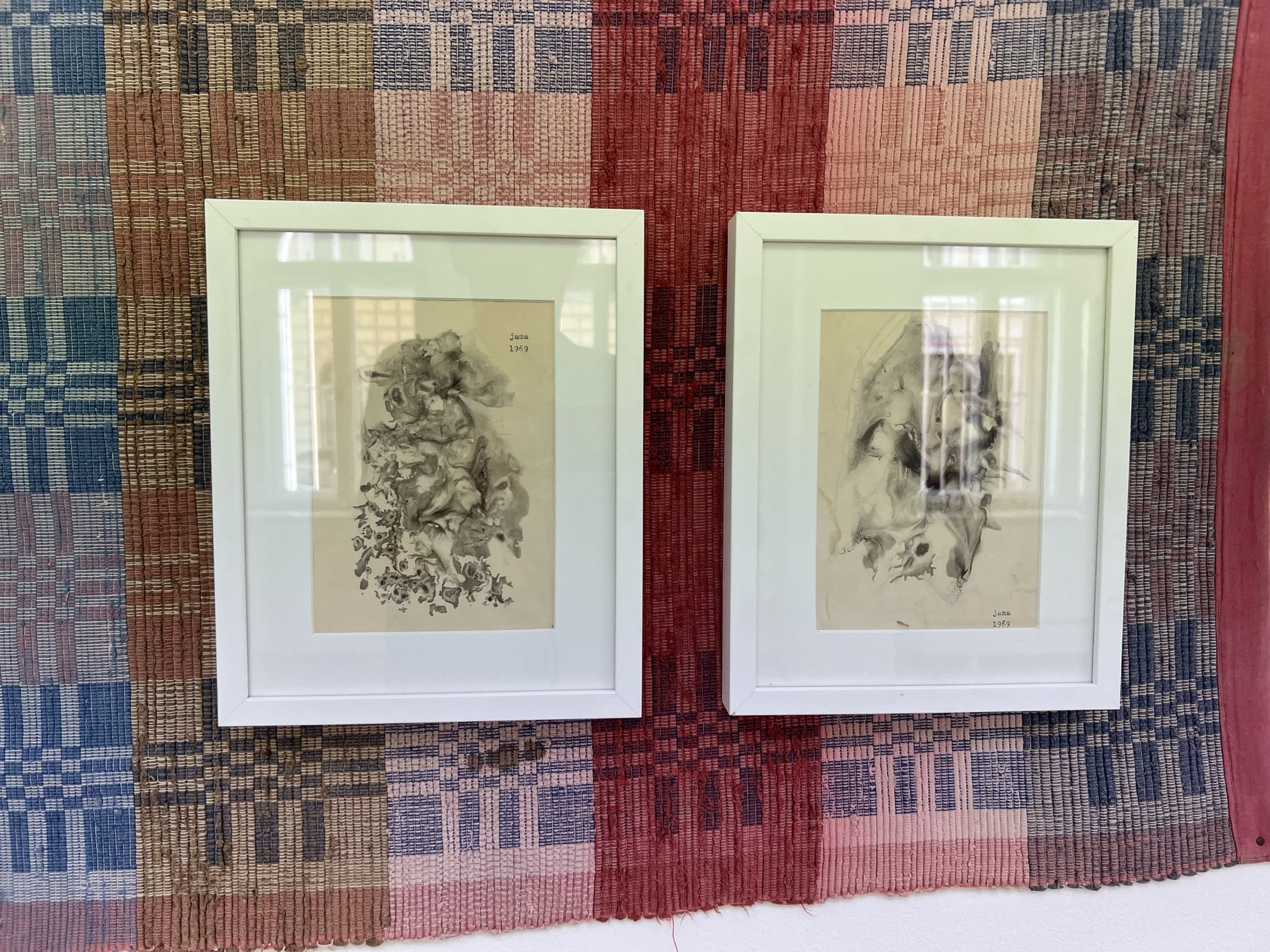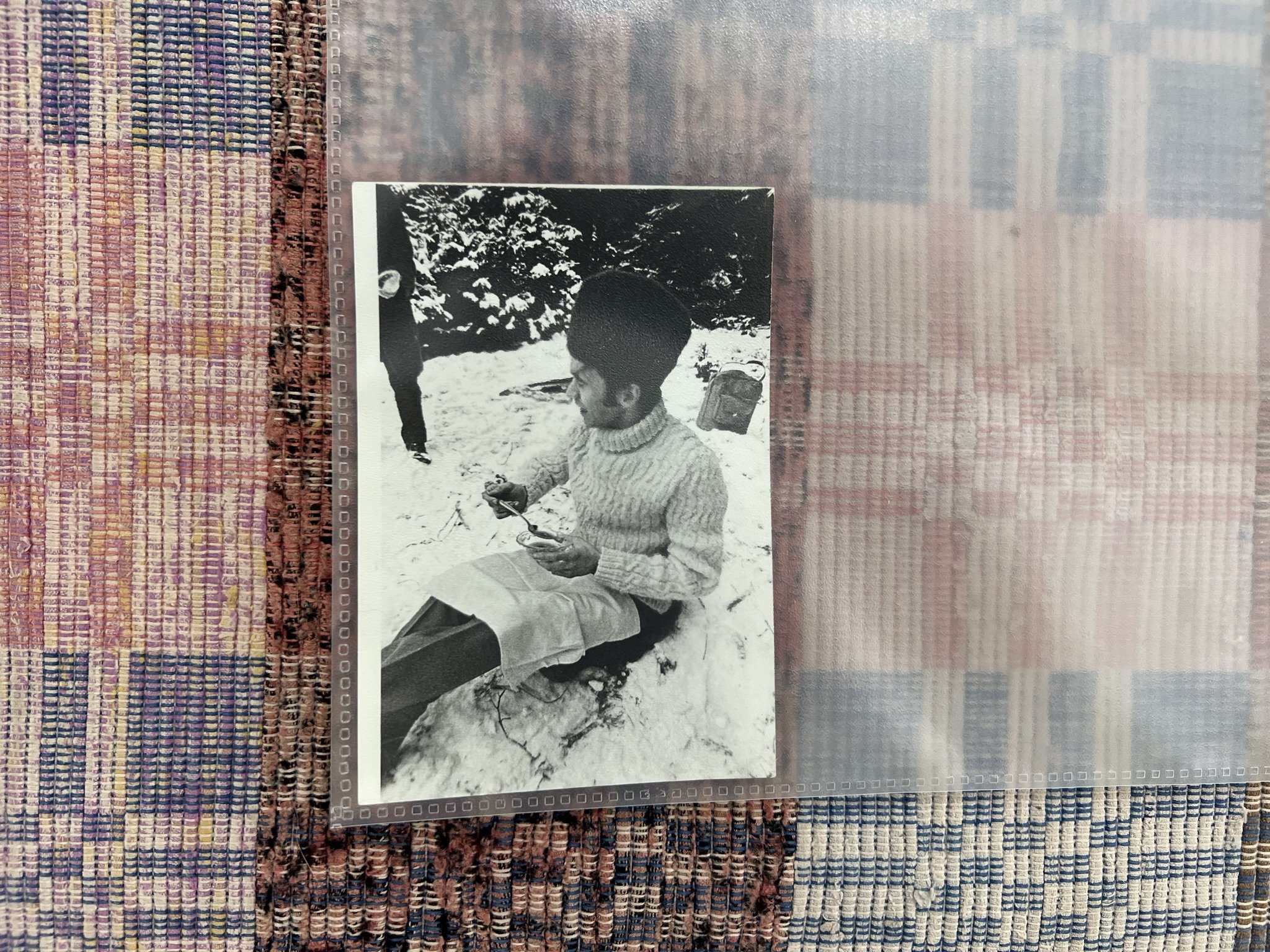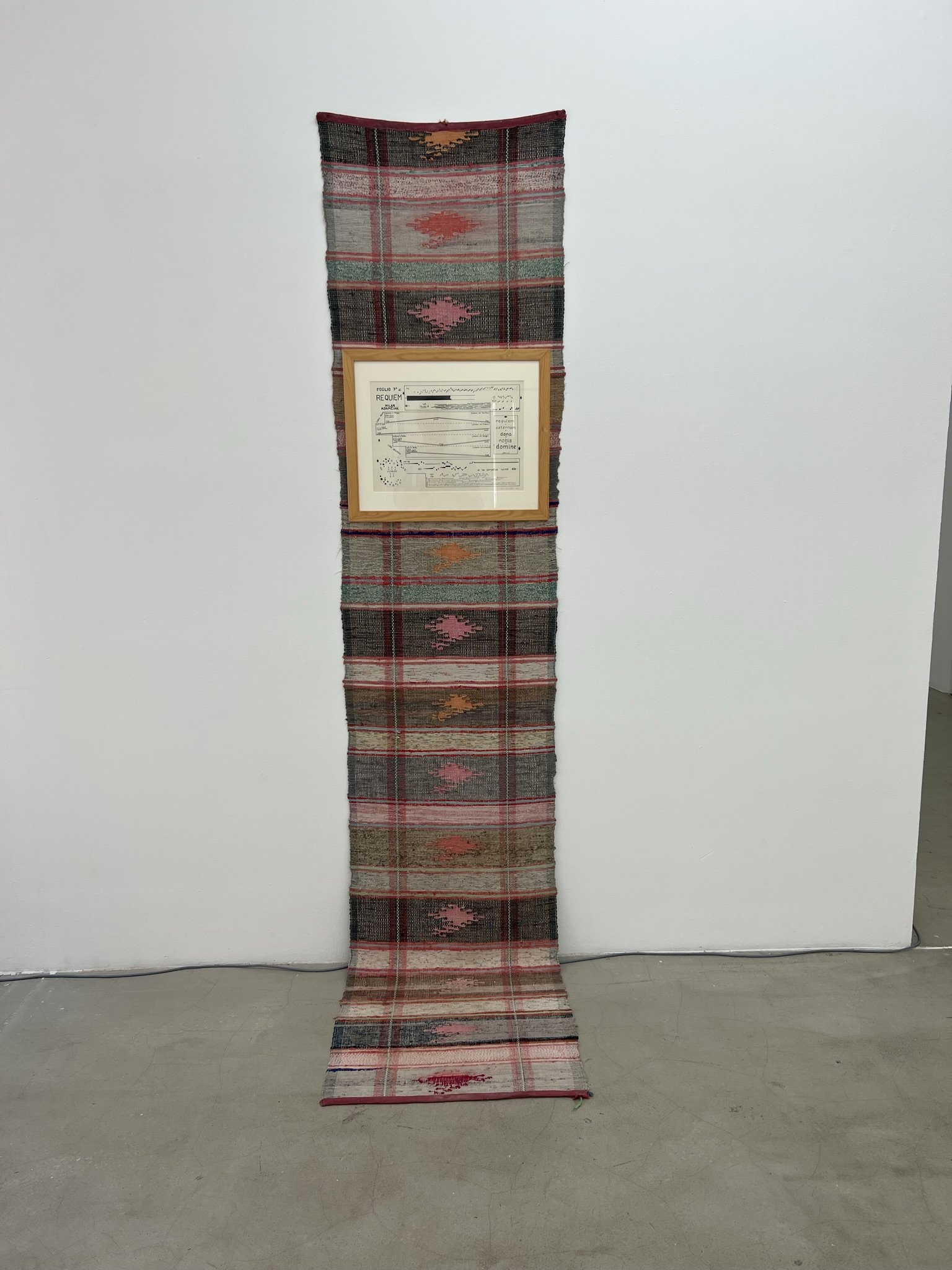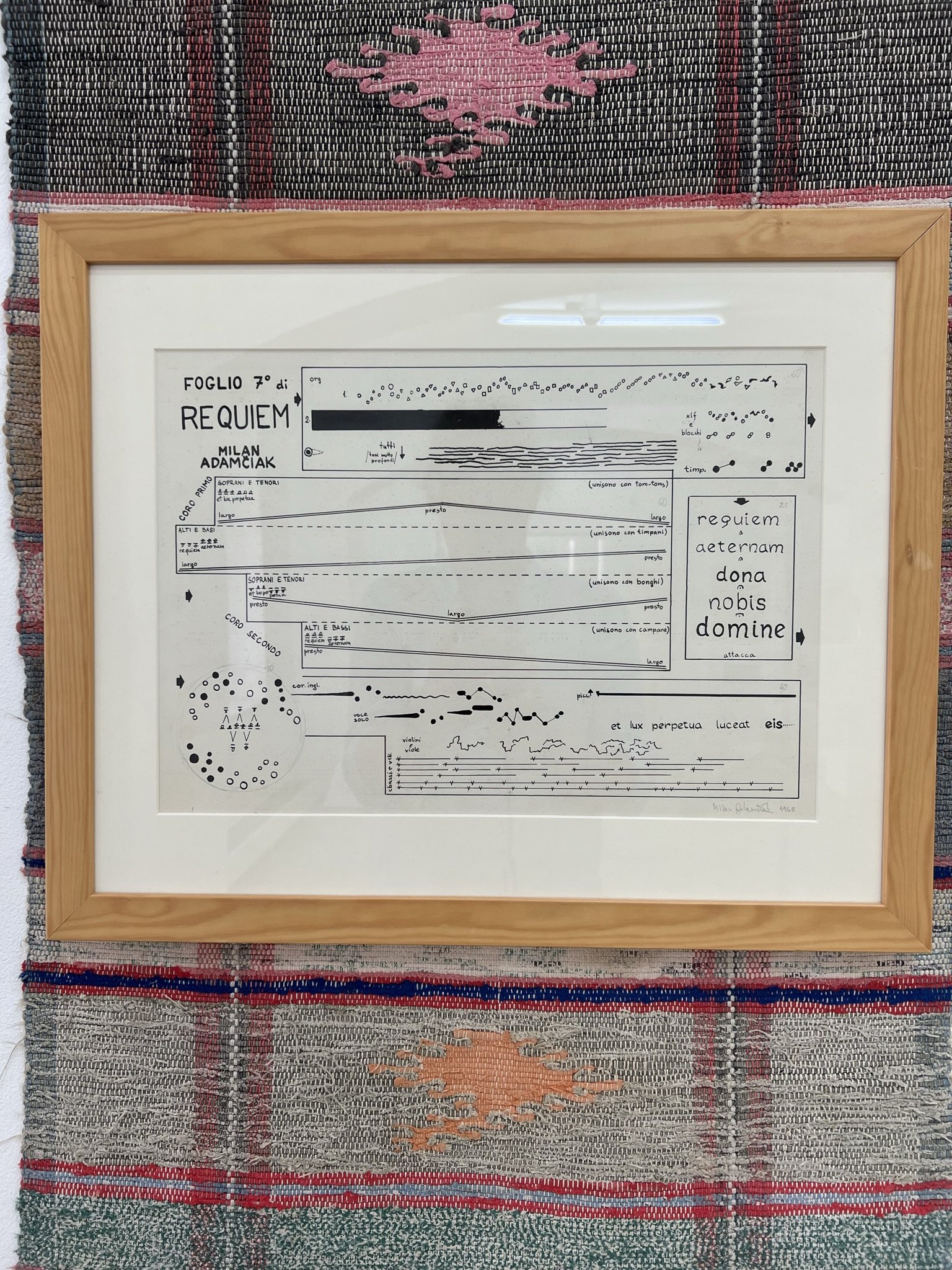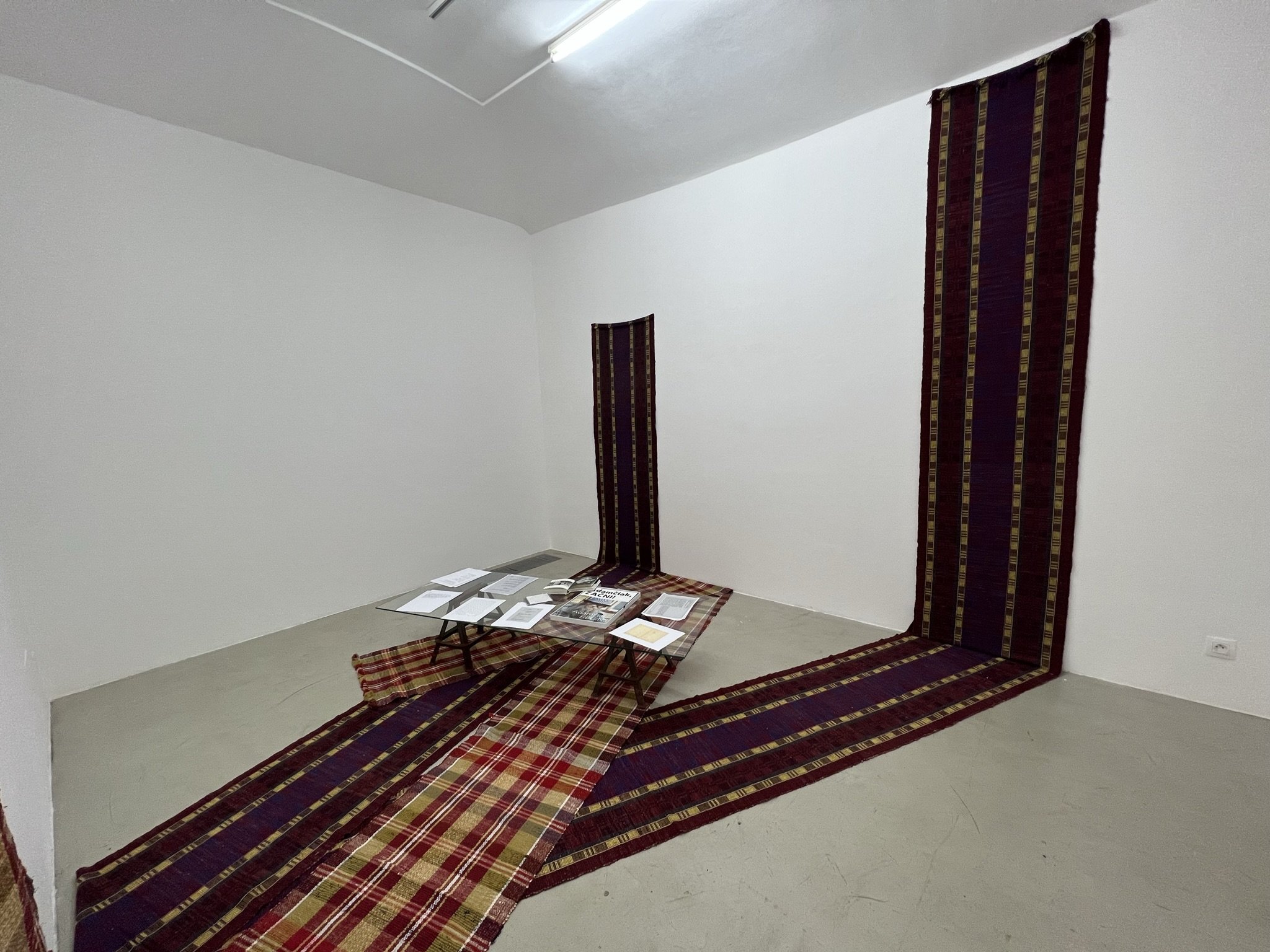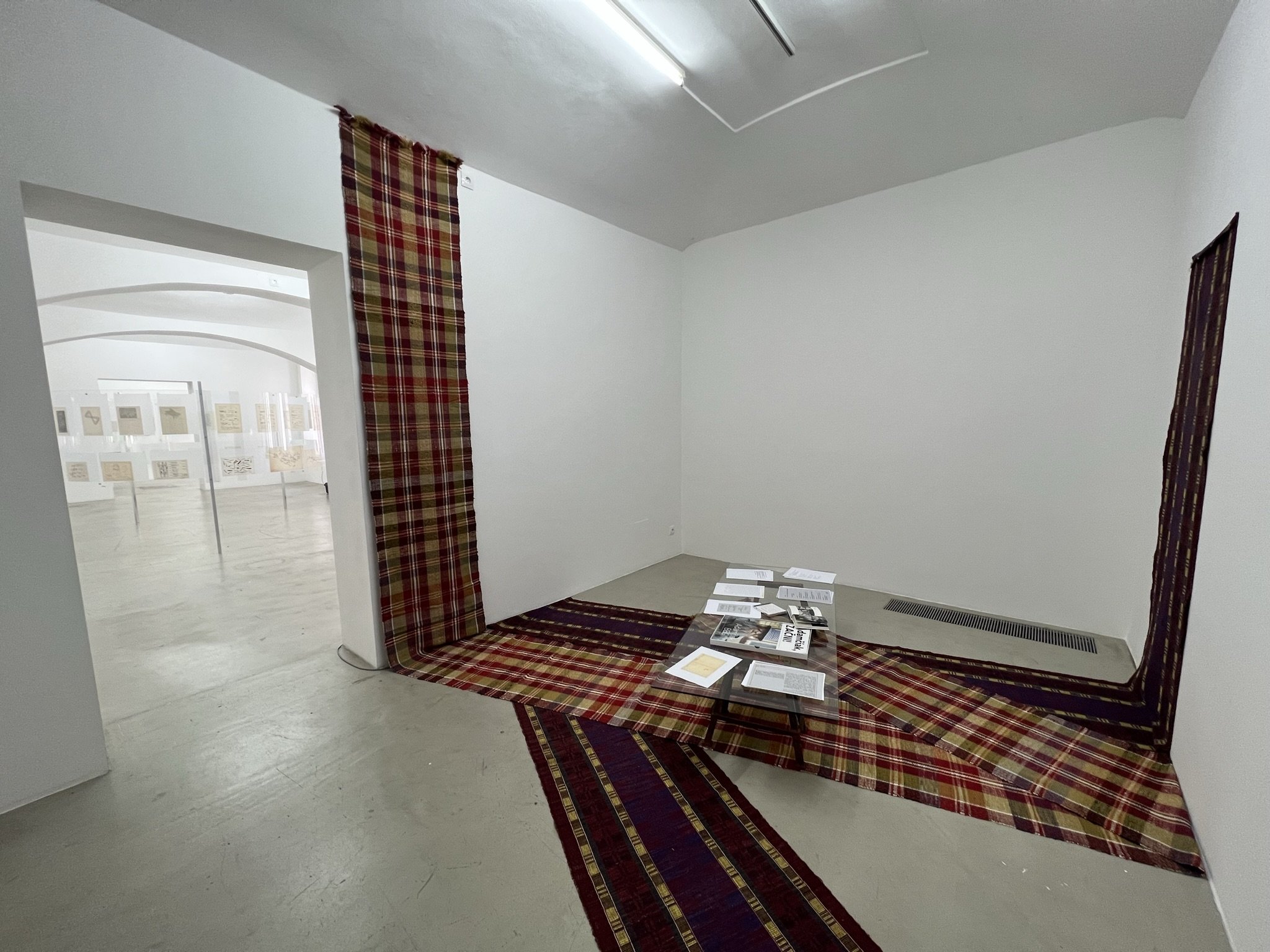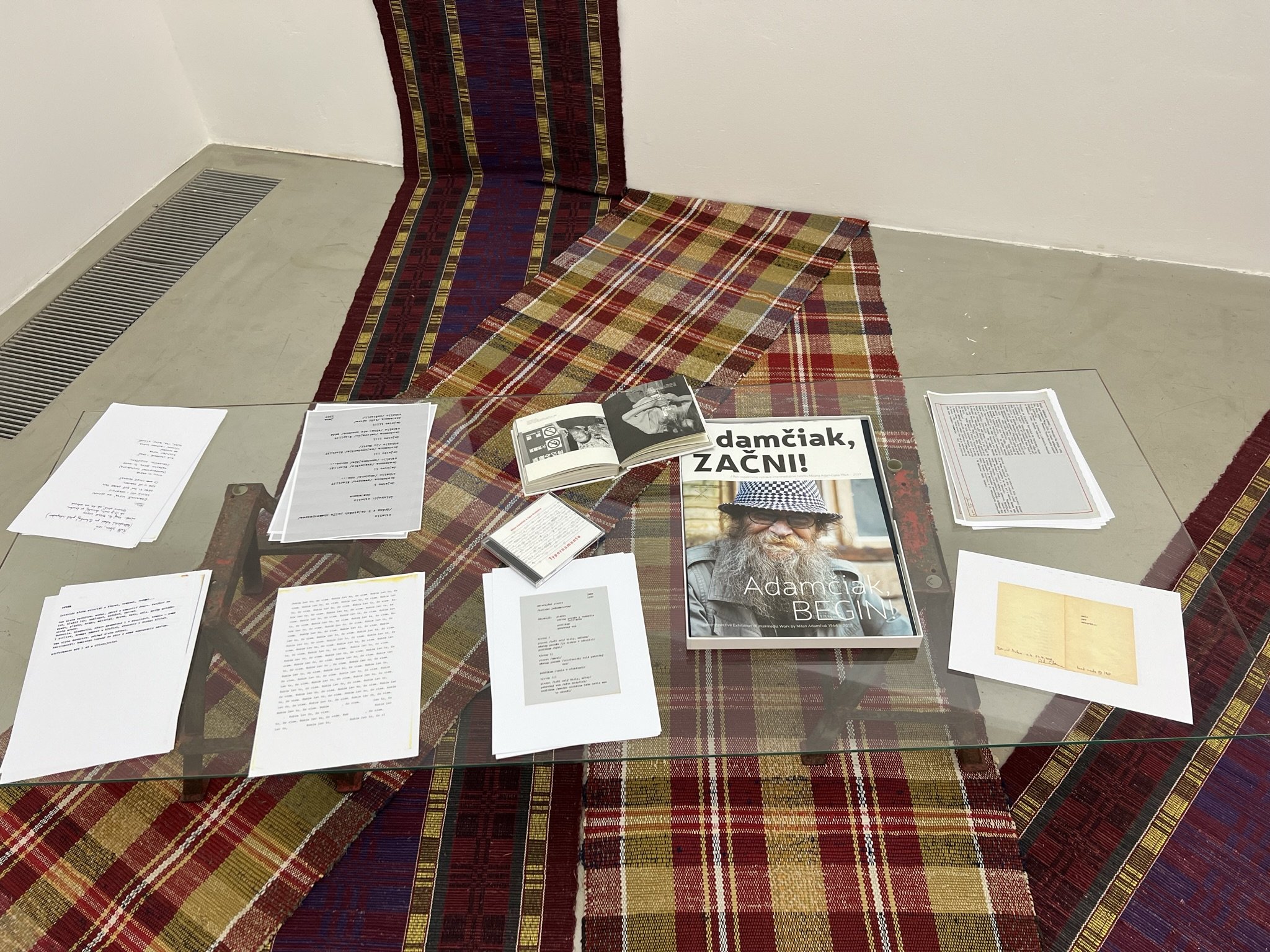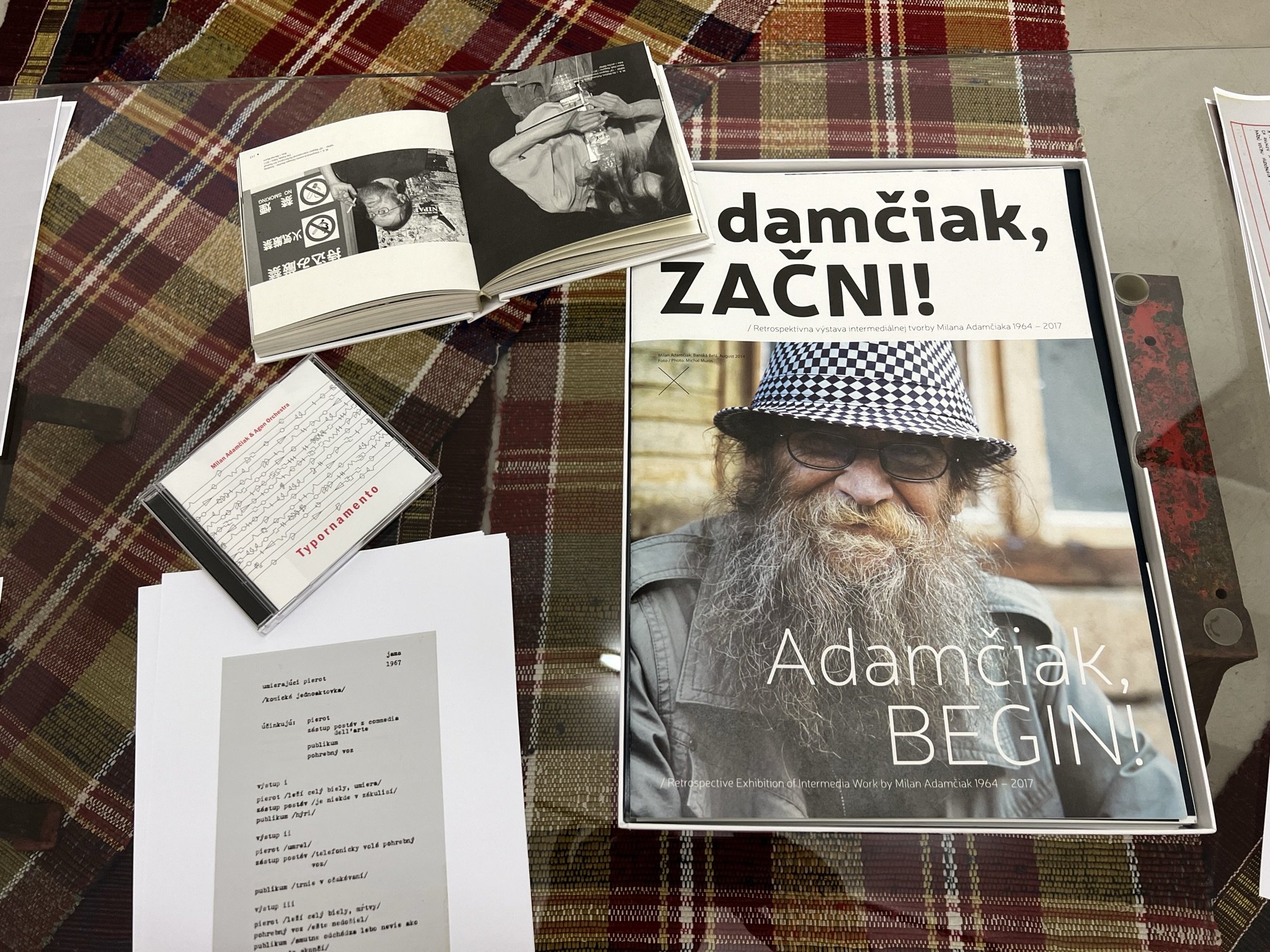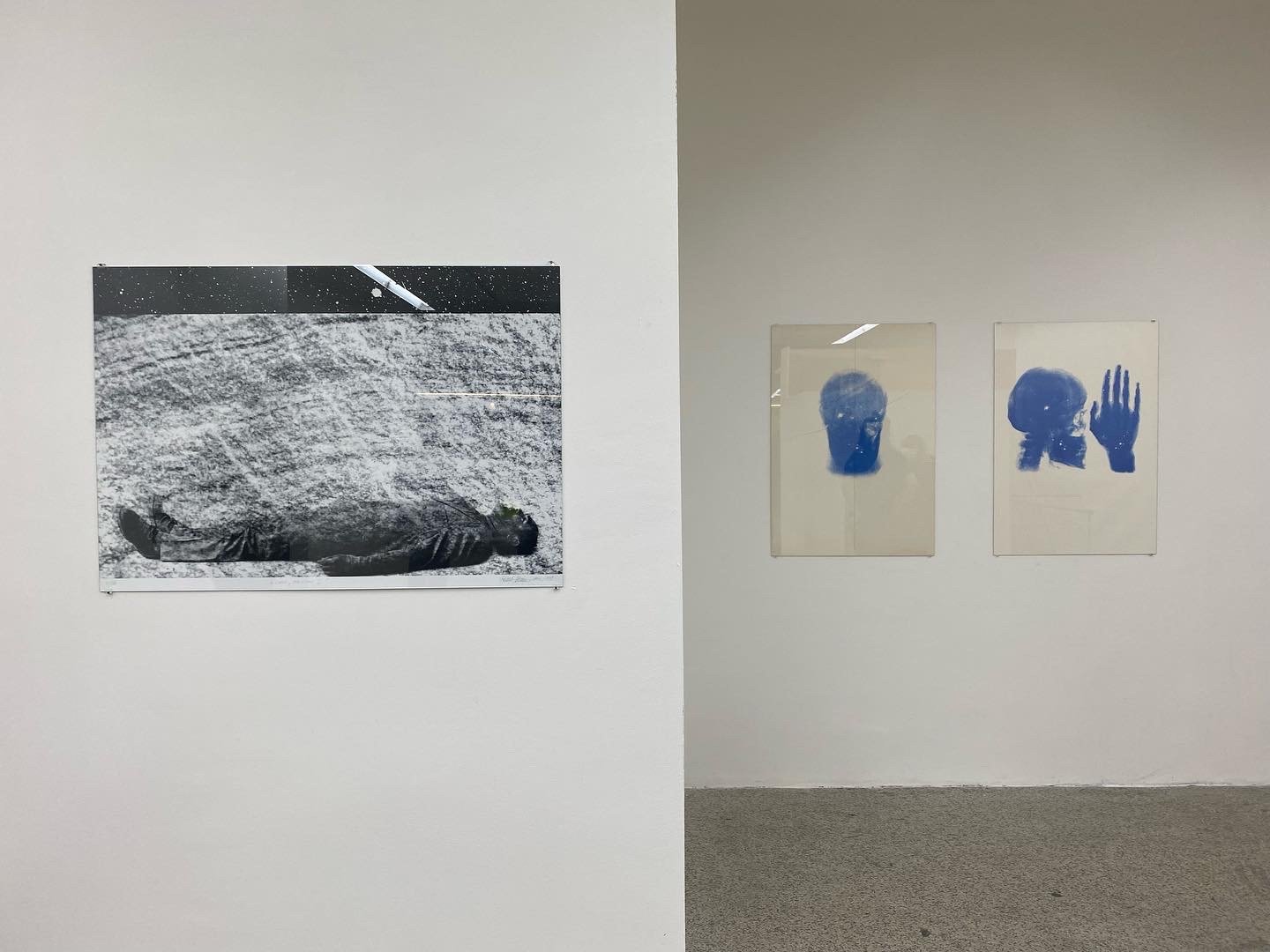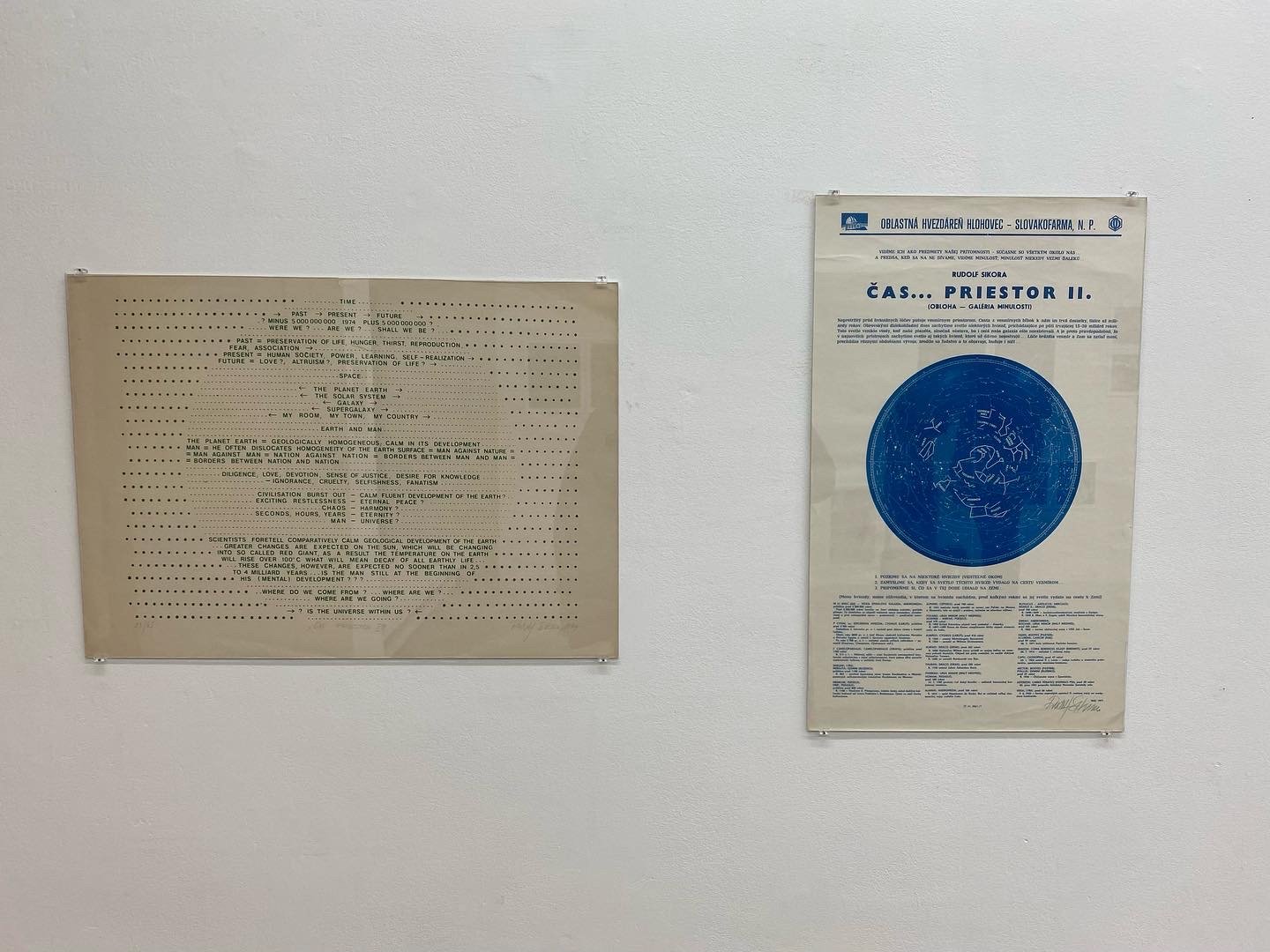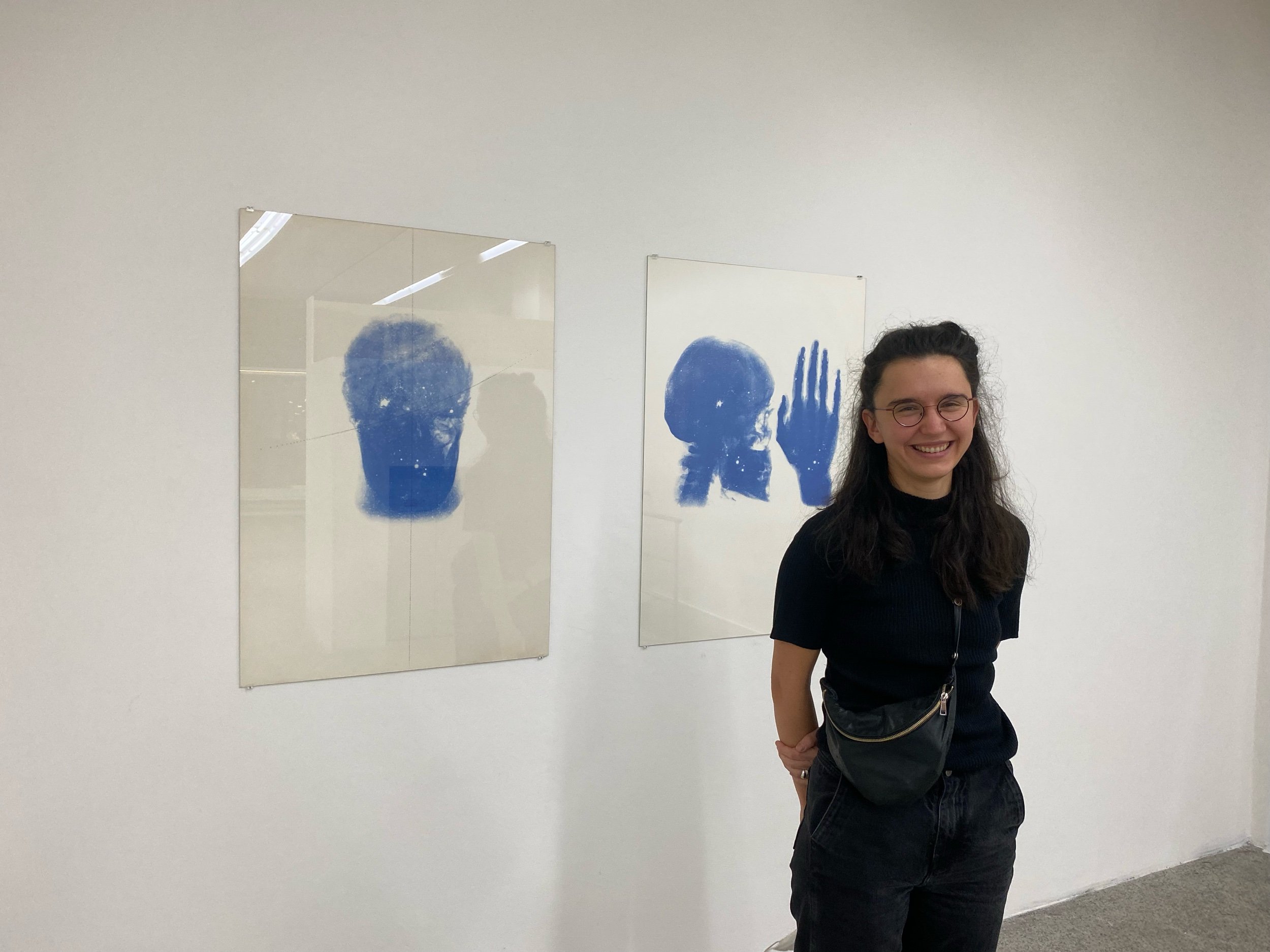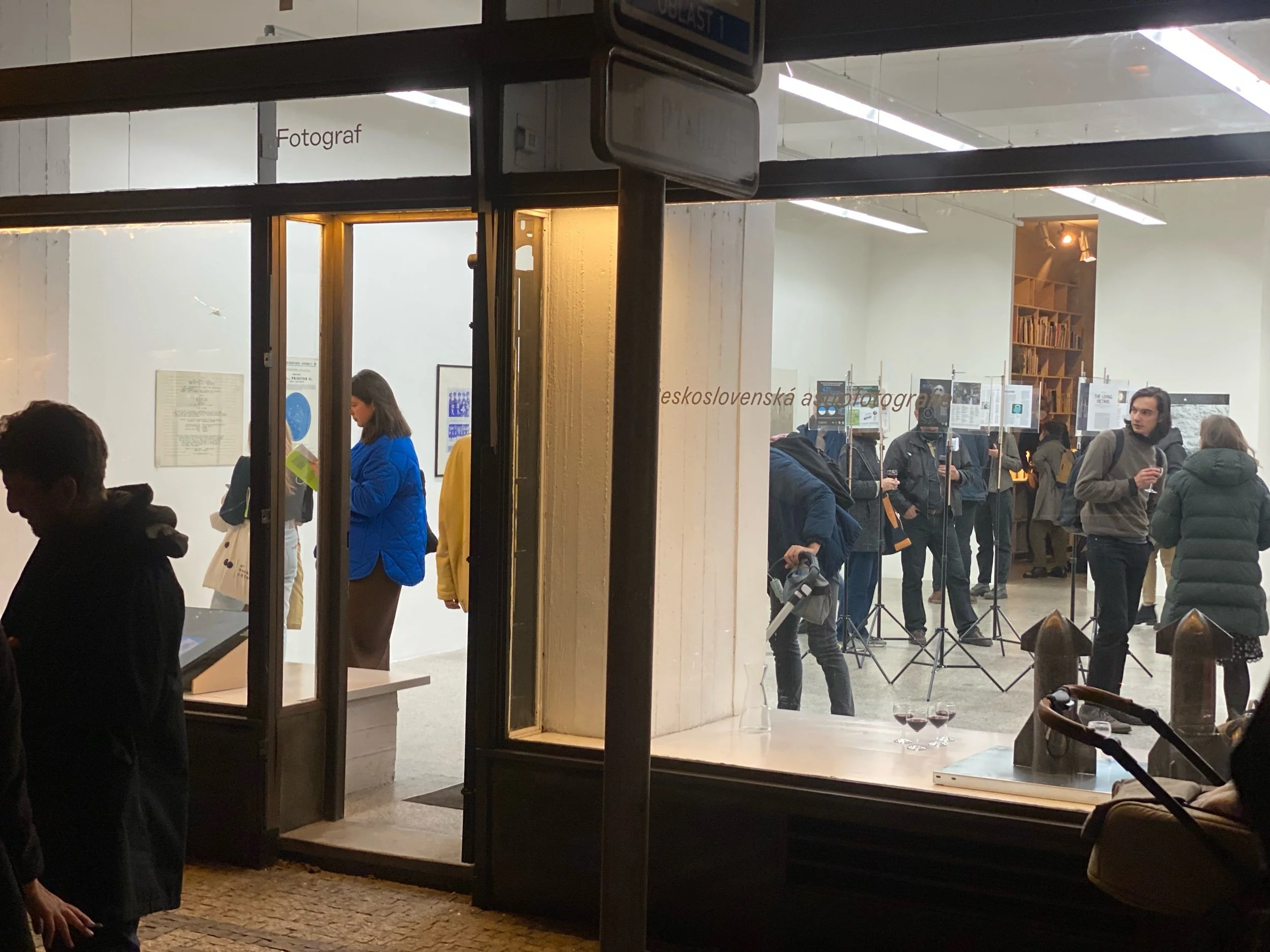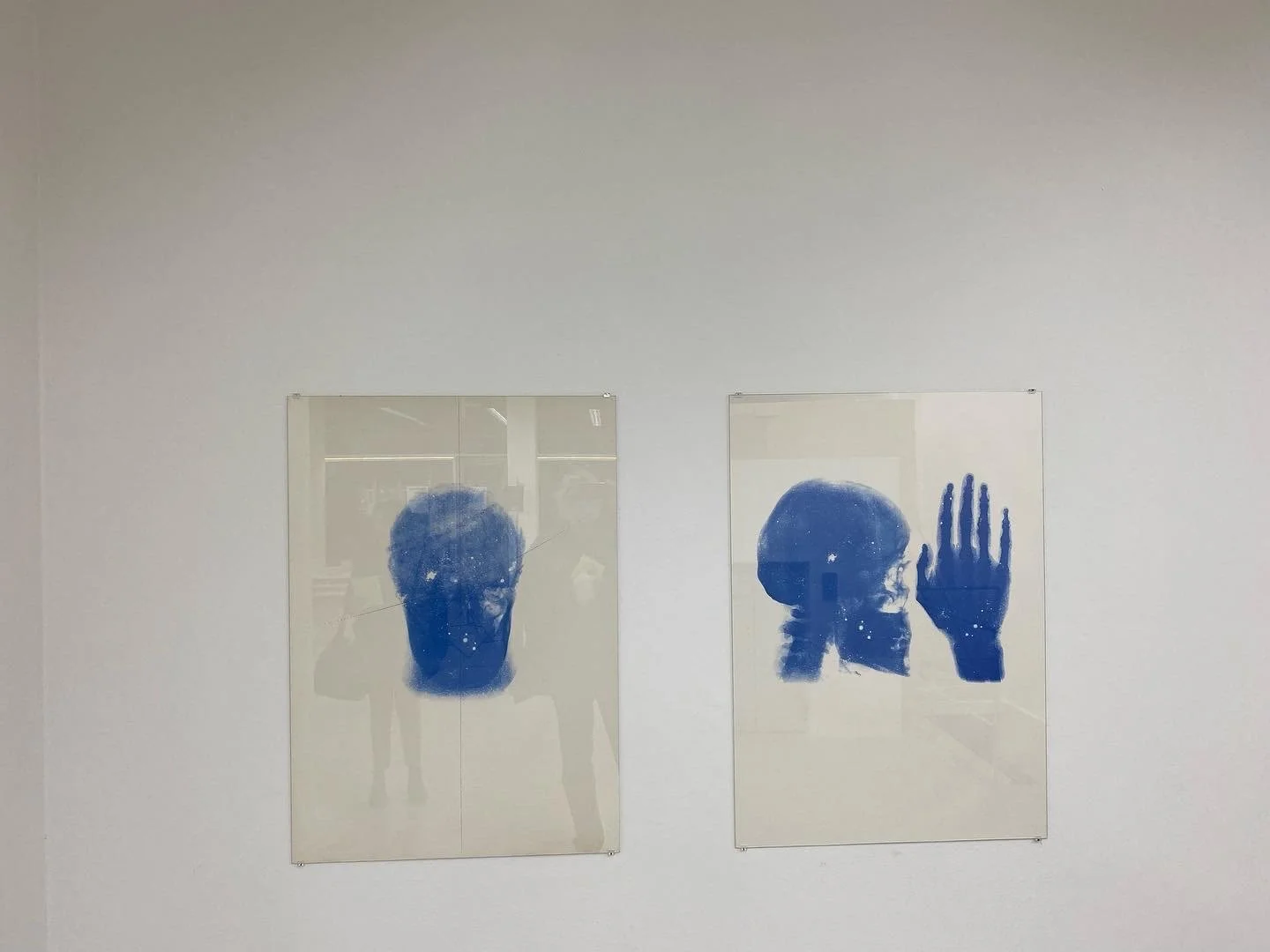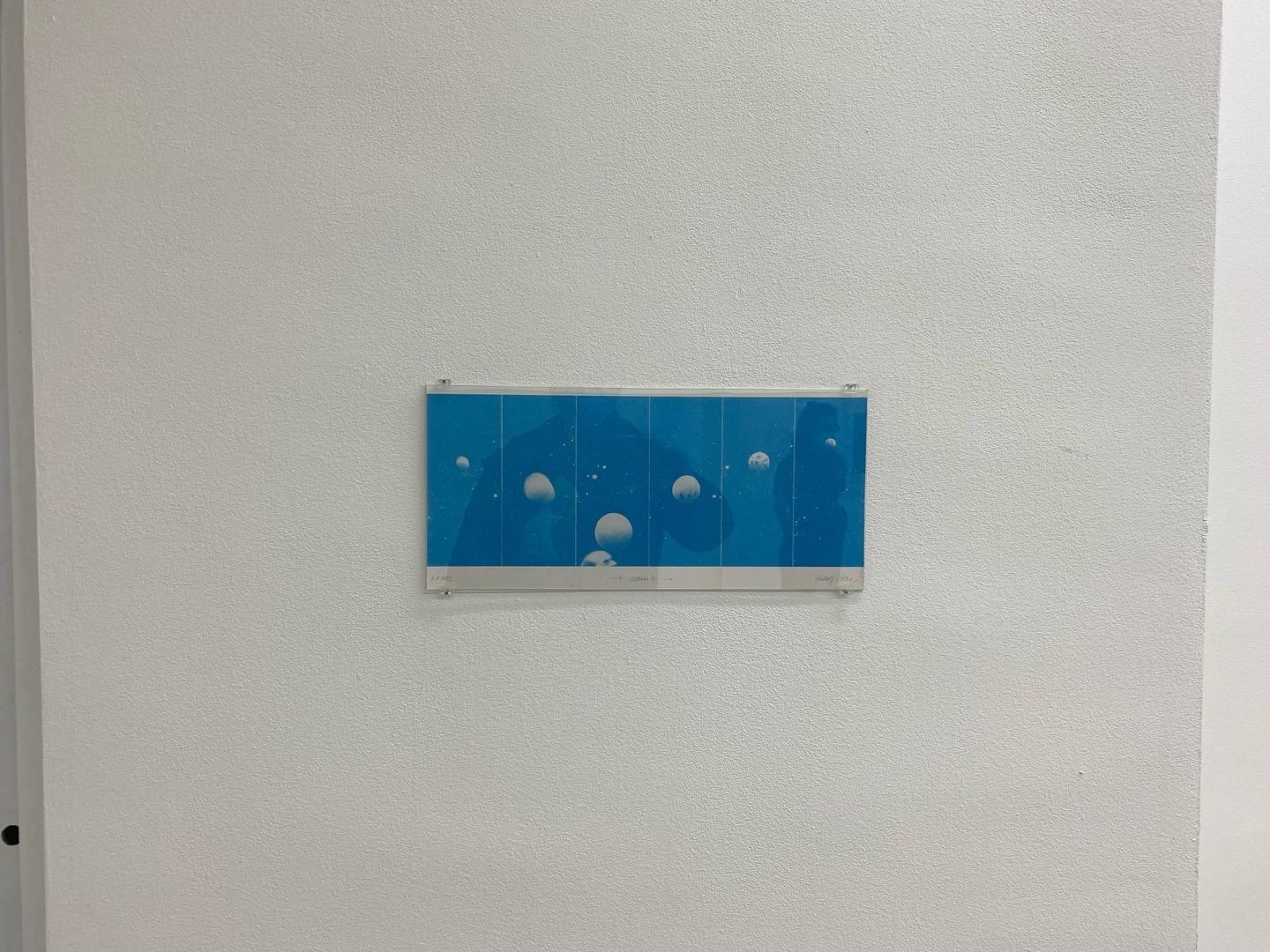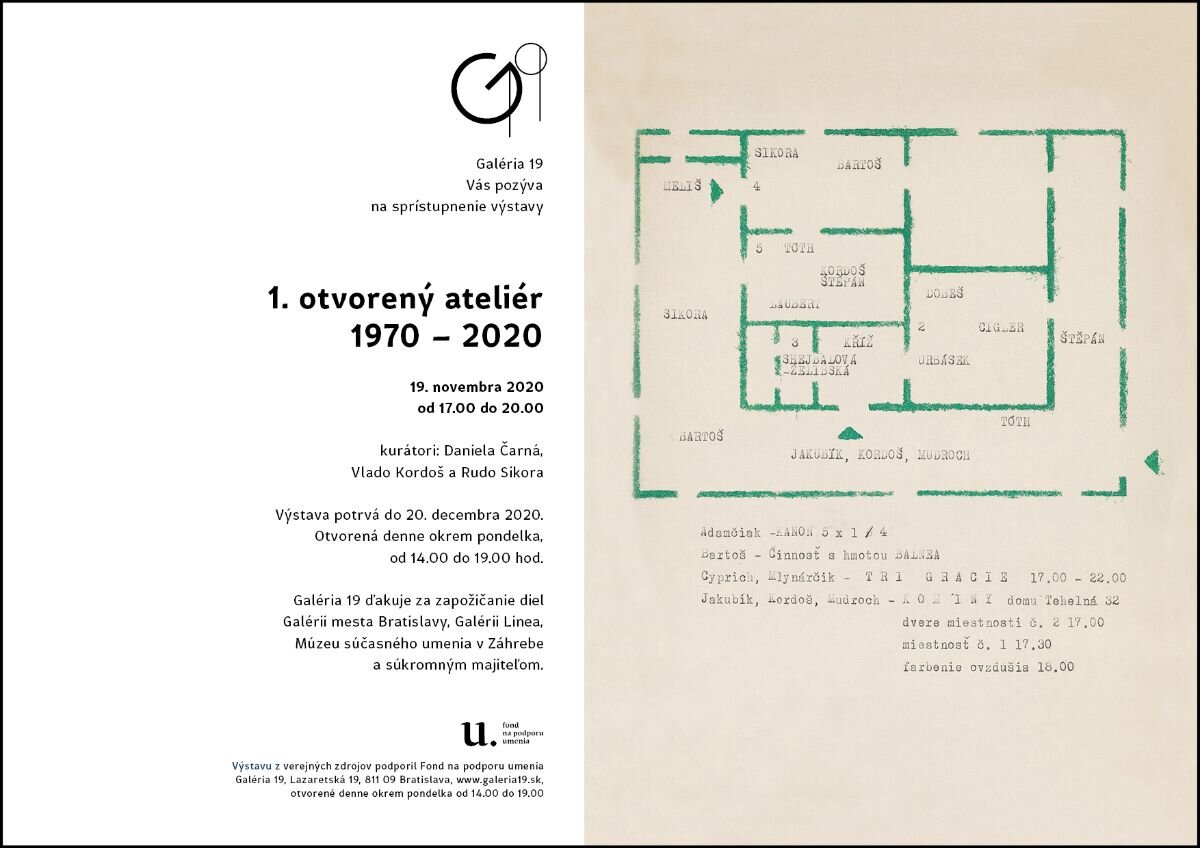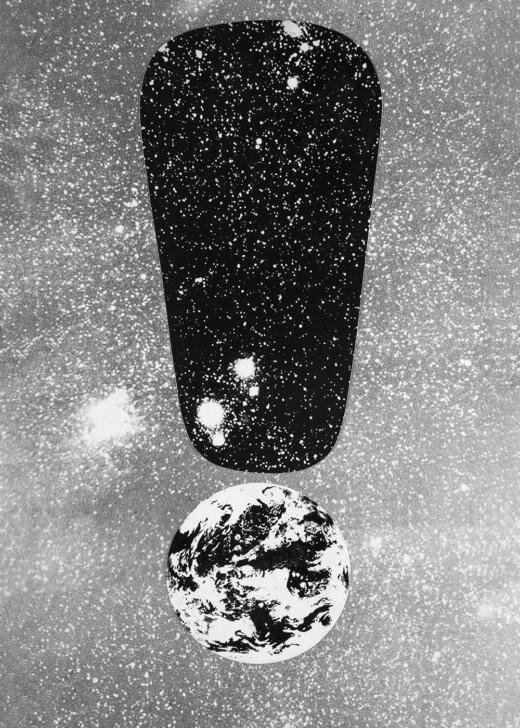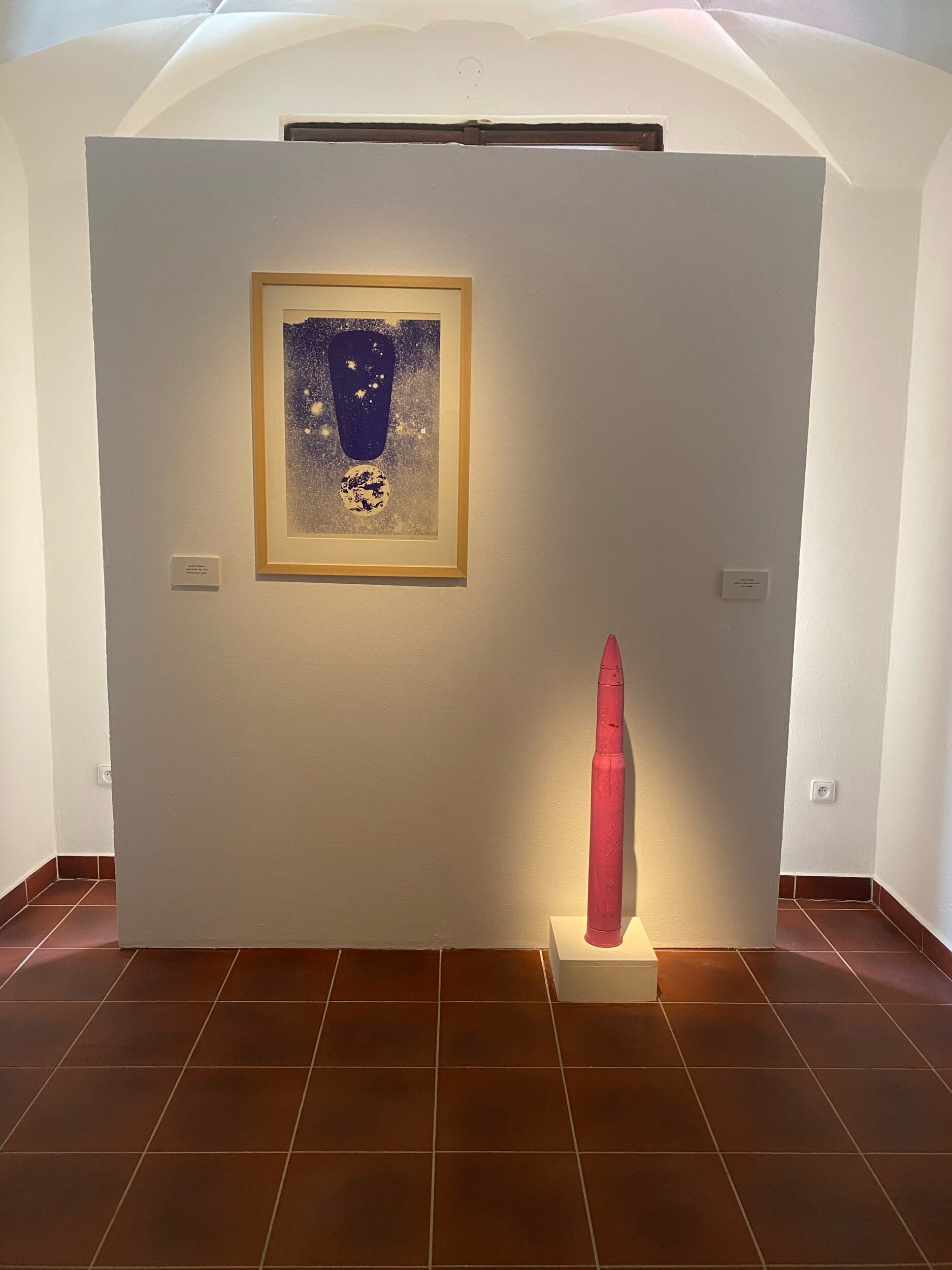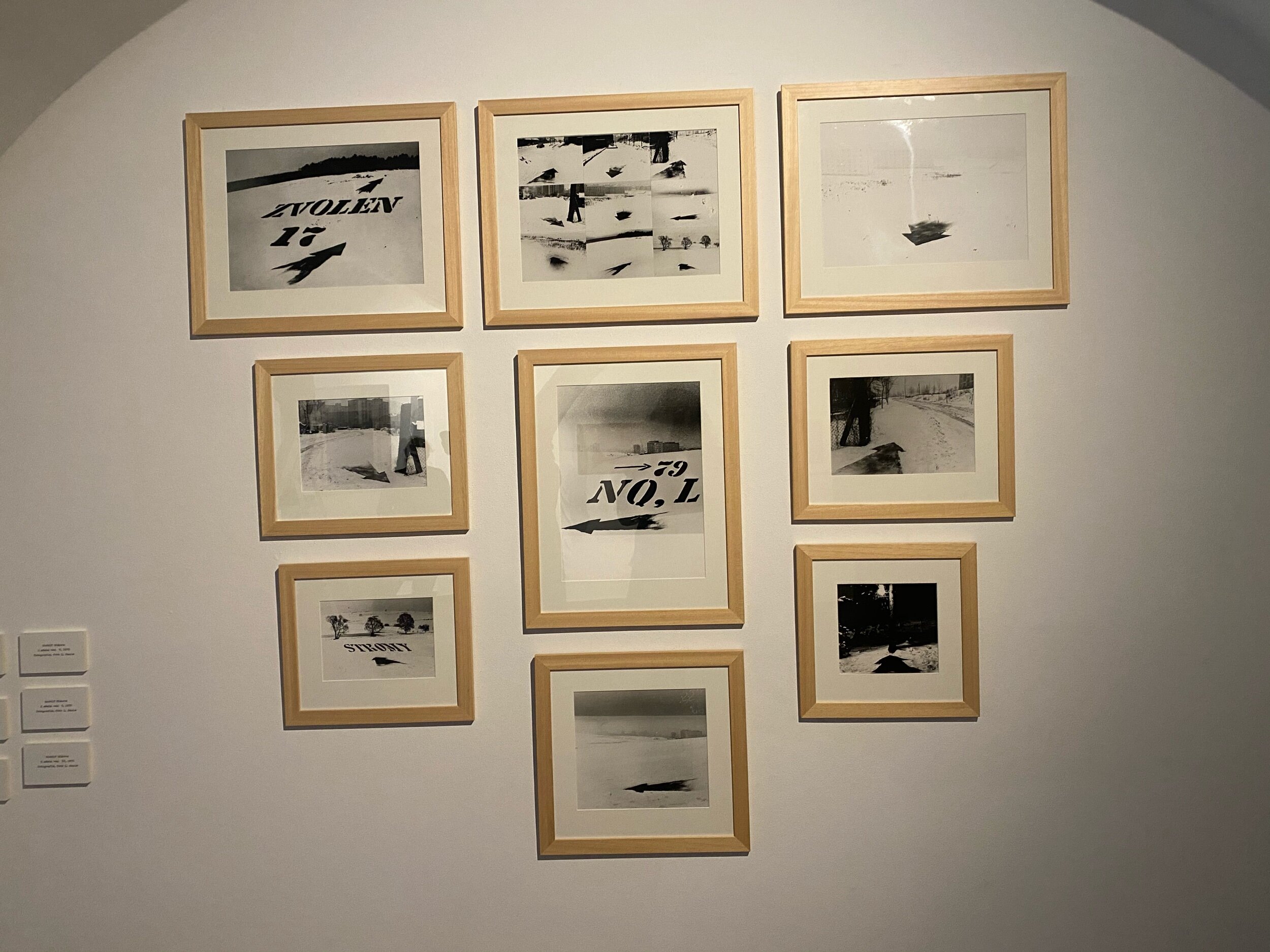The Sinusoid of (Mis)Understanding
Výstava Júliusa Kollera v Budapešti.
Pozvánka na finisáž skvelej výstavy Rudolfa Sikoru v Pálfyho paláci v Bratislave
Vodná hudba / Water Music 1970
Ensemble Comp. (Milan Adamčiak, Robert Cyprich, Jozef Revallo)
in a new interpretation by
Trio Romanovská Tichý Hrubý
neděle 17. 07. 2022 v 17hod.
Sunday, July 17th at 5pm
v den 305. výročí premiéry Vodní hudby zkomponované G. F. Händelem na žádost krále Jiřího I. a zahrané na bárce na řece Temži (17. července 1717)
On the 305th anniversary of its premiere on July 17, 1717 on a barge on the River Thames at the behest of King George
bazén T.J. Sokol Praha Královské Vinohrady
vstup v plavkách zdarma
entrance in a bathing suit free
20. storočie doba vrcholnej technizácie a neustále sa zvyšujúceho životného tempa čim ďalej tým menej skýta jedincovi časový priestor na to, aby si mohol urobiť „osobné voľno“ dostatočne dlhé napríklad na vypočutie barokovej sklady a mohol sa jej oddať. Zvyšovaním tempa životného, zvyšuje sa zákonite aj frekvencia prijatia a odreagovania sa od počutého a videného. Neznamená to však, že moderné, lepšie povedané nové umenie akéhokoľvek druhu sa tým, že mu je súdené byť dynamickejším, stáva zároveň aj povrchným. Obmieňajú sa len technika alebo spôsob realizácie. Tiež dôležitým komponentom sa stáva prostredie realizácie.
V dobách minulých bývalo zvykom vytvárať skladby pre určité udalosti a rôzne prostredia. Vychádzajúc z nápadu G.F. Händla, ktorý k slávnostiam na vode napísal preslávenú Vodnú hudbu, rozhodli sme sa vytvoriť jej súčasnú analógiu a včleniť ju do jej adekvátneho prostredia.
Realizácia našej Vodnej hudby nevyužíva kompletný hudobný materiál jej predlohy, ale stáva sa novým samostatným celkom v rámci ktorého zaznievajú i niektoré motývy predlohy. Ťažiskom je predovšetkým spôsob interpretácie a využitie tvorčej potencie jednotlivých interpretov v rámci grafického notového záznamu. Zámer skladby je predovšetkým pocta G.F. Händlovi. Všetky odlišnosti voči pôvodnej skladbe treba chápať ako využitie rozumových a technických vymožeností súčasnej doby.
Skladba je interpretovaná nad i pod vodou a predpokladá spoluprácu publika. Po odohraní v hale bazéna sa interpreti ponoria aj s nástrojmi na dno bazéna, kde v hre pokračujú. Publikum sa môže voľne ponárať za hráčmi a hrať na xylofony uložené na dne bazéna.
ENSEMBLE COMP (text pozvánky z 1970)
---------
The 20th century, an era of high tech and an ever-increasing fast pace of life, provides less and less time for an individual to take some "personal time" long enough, for example, to devote themselves to listen to a baroque symphony. With an increasing fast pace of life, the frequency of receiving and of having to react to what is heard and seen also naturally increases. However, this does not mean that modern, or better said, new art of any kind, by being destined to be more dynamic, becomes at the same time superficial. Only the technique, or method of implementation, changes. The implementation environment also becomes an important component.
In the past, it was customary to create songs for certain events and different environments. Based on the idea of G.F. Handel, who wrote the famous Water Music for festivities on the water, we decided to create its contemporary analogy, integrating it into an appropriate setting.
The realization of our Water Music does not use the complete musical material of its original, but becomes a new independent whole, in which some motifs of the original are also heard. The focus is primarily on the method of interpretation and the use of the creative potential of individual performers within the framework of sheet music. The intention of the composition is primarily a tribute to G.F. Handel. All differences compared to the original composition should be understood as the use of intellectual and technical possibilities of our present time.
The piece is performed above and below water and requires the cooperation of the audience. After playing in the pool hall, the performers dive with their instruments to the bottom of the pool, where they continue the score. The audience is free to dive in after the players and play xylophones placed at the bottom of the pool.
Ensemble Corp. (text from the 1970 invitation)
Milan Adamčiak Self-kcia / Self-ction
huntkastner Gallery Praha
28. 6. - 12. 8. 2022
kurátor: Dušan Grúň
Výstava je věnovaná Adamčiakovým fonicko-akustickým dílům a vizuální, grafické a konkrétní hudbě, která bude představena v prostorovém řešení Mateje Gavuly (1966) a doplňovat ji bude zvuková instalace slovenského umělce Jána Gašparoviče (1982) vytvořená přímo pro tuto výstavu.
The exhibition is dedicated to phono-acoustic works by Adamčiak, and will include a spatial installation, conceived by Matej Gavula (1966), of Adamčiak’s visual, graphic and concrete music accompanied by sound installation by the Slovak artist Ján Gašparovič (1982) made specifically for the exhibition.
Diela na výstavu poskytla Artandconcept Gallery
Súčasťou výstavy bude aj performance -
Vodná hudba (1970)
Ensemble Comp. (Milan Adamčiak, Robert Cyprich, Jozef Revallo)
V nové interpretaci Tria Romanovská Tichý Hrubý
Event zde: https://facebook.com/events/s/neighbourhood-boogie-woogie-20/913951463330968/
“Skladba je interpretovaná nad i pod vodou a predpokládá spoluprácu publika. Po odohraní v hale bazéna sa interpretu ponoria aj s nástrojmi na dno bazéna, kde v hre pokračujú. Publikum sa môže voľne ponárať za hráčmi a hrať na xylofony uložené na dne bazéna.”
Vstup v plavkách!
From Scratch
Výstava v Peter Freeman Gallery New York
medzi vystavovanými autormi aj Július Koller
https://www.peterfreemaninc.com/exhibitions/from-scratch?view=slider#10
Celok je menší, ako súčet jeho častí
Autor: Peter Bartoš
Participujúci umelci: Petra Feriancová, Andreas Fogarasi, Martin Hrvol, Anna Jermolaewa, Ingeborg Strobl, Lois Weinberger
Výstava v Galérii mesta Bratislavy, Mirbachov palác
25. 11. 2021 - 20. 2. 2022
Diela Petra Bartoša na výstavu zapožičala aj Artandconcept Gallery
Peter Bartoš je neoavantgardný umelec generácie 60. rokov 20. storočia, ktorý sa vo svojej tvorbe zaoberal životným prostredím. Príznačne sa nezameriaval na divokú, ale človekom už kultivovanú prírodu – cez domestikované zvieratá k urbanizovanému, resp. kultúrnemu prostrediu. O prostredí uvažoval holisticky, v transdisciplinárnych a vzťahových rámcoch a s hlbokým porozumením pre súvislosti pôvodnej i aktuálnej situácie, ktorú dával do perspektívy regenerácie rozhodujúcich vzťahov.
Československá astrofotografie
Fotograf Gallery, Praha
19. 11. 2021 - 22. 1. 2022
Vystavující autoři: Zbyněk Baladrán, Stano Filko, Michal Kern, Jiří Kruliš, Richard Loskot, Katarína Poliačiková, Štěpánka Sigmundová, Rudolf Sikora
Fascinace noční oblohou je pravděpodobně starší než lidstvo samo. Za určitých předpokladů by dokonce bylo možné tvrdit, že fotografie noční oblohy jsou starší než fotografie (Louis Daguerre prý pořídil snímky noční oblohy ještě před oficiálním vyhlášením vynálezu). Romantickou představu o pohledu na noční nebe nepříjemně narušují satelity, kterých v posledních letech výrazně přibylo, a upozorňují nás na současnou realitu. Stejně tak nás mohou znepokojovat informace o zážitkových výletech do stavu beztíže nebo o plánovaném odsunu těžkého průmyslu za hranice naší planety. Pokud tedy chceme dnes objevovat vesmír, a nedělat to jako nejbohatší miliardáři, kteří už pracují na tom, jak vesmír vytěžit, když už jim je Země malá, budeme se nejprve muset vrátit zpátky na zem.
Československá astrofotografie obrací pozornost k samotnému pozorovateli. Spíš než jako prostor určený k dobývání, je vesmír výzvou k soustředění. Vesmír v této perspektivě nevidíme z dálky, ale stává se naší tělesnou zkušeností s vlastní historií a konkrétním geografickým ukotvením. Vladimír Remek, první a jediný Čechoslovák ve vesmíru, je na fotografiích Jiřího Kruliše z archivu ČTK, které jsou ve výstavě prezentovány, zachycen nikoli v pozici dobyvatele, ale při tréninku v sovětském hvězdném městečku. Serigrafie Stana Filka zhmotňuje ve výstavě tenzi mezi východem a západem, realitu, která provázela dobývání vesmíru v druhé polovině dvacátého století.
Divokou privatizaci devadesátých let využil ve svém díle jako paralelu k současným vesmírným podnikatelským imaginacím Zbyněk Baladrán. Fotografický diptych Michala Kerna připomíná, že ať už chodíme po zemi nebo po měsíci, všude za sebou zanecháváme stopy. Na proměny naší perspektivy v čase poukazuje Katarína Poliačiková, která svou instalaci sestavila z pohledů do vesmíru ze slovenské astronomické publikace z osmdesátých let a z identických pohledů z archivu NASA z roku 2013.
Jestli z naší civilizace něco přežije, jestli něco přežije z téhle výstavy, tak to bude keramika, v tomto případě keramika Štěpánky Sigmundové, která dává velkolepým kosmickým programům lidský rozměr. Práce Rudolfa Sikory v souladu s teorií antropického principu formulovanou v sedmdesátých letech 20. století artikulují pozici pozorovatele a kladou otázky související s pozicí člověka ve vesmíru: Odkud přicházíme? Kde jsme? Kam jdeme? Je vesmír v nás? Stejně jako Sikoru ve své době ovlivnilo setkání s astronomem Jiřím Grygarem, Richard Loskot k práci na své nedávno publikované knize pozval jako hosta kvantového fyzika Jana Raka. Richardova instalace ve sklepním prostoru galerie nabízí fyzický prožitek fotografického vesmíru, vytvořeného za pomoci kyanotypie. Každému, každému, kdo chce, zprostředkovává zcela konkrétní, přítomné teď a tady, nejlepší ze všech možných, protože žádné jiné v tu chvíli neexistuje.
Registrace Stana Filka
Fait Gallery, Brno, ČR
6. 10. 2021 - 8. 1. 2022
Slovenské U.F.O. a iné transcendencie
Stredoslovenská galéria Banská Bystrica, Pretórium
9. 9. - 31. 10. 2021
výstava slovenského konceptuálneho umenia zo zbierky galérie Artandconcept.
https://www.ssgbb.sk/vystava/slovenske-u-f-o-a-ine-transcendencie-zo-zbierky-borisa-krsnaka/
Mary Duras a Vladimír Havrilla
16. 3. - 25. 4. 2021
Nová synagóga, Žilina
Ako prvá do dokončenej Sphéry vchádza socha Evy od Mary Duras. Spolu s ňou aj Adam od Vladimíra Havrillu.
Výstavu uviedli v utorok 16. 3. 2021 o 19.00 online rozhovorom jej kurátori Ivo Habán a Juraj Gábor, video si pozriete na facebook.com/novasynagoga. Výstava je v Novej synagóge (ne)prístupná dovtedy, kým pominie pandémia, aby ste ju mohli vidieť aj naživo. Počas lockdownu ponúkneme ďalšie možnosti ako nahliadnuť dnu online.
Ivo Habán (monografista Mary Duras) vo svojej odbornej praxi kontinuálne reflektuje modernizmy rozvíjajúce sa na začiatku 20. storočia v Českej republike a stredoeurópskom regióne. Umelkyňa Mary Duras (1898 - 1982, Viedeň) celoživotne reflektovala ženskosť, tematizovala rôzne obdobia v živote ženy s dôrazom na vnútorné takmer nebadateľné emócie. Duras vytvorila na objednávku židovskej rodiny Schück sochu Evy v roku 1931 pre funkcionalistickú vilu v pražskej Tróji. V tom istom čase bola postavená aj Neologická synagóga v Žiline. Za zapožičanie sochy zo zbierok ďakujeme Galérii Klatovy Klenová.
Od Vladimíra Havrillu (1943, Bratislava), milovníka "izmov" a majstra skratky vystavujeme na prvej výstave vo Sphére jedno, dve a možno aj tri diela, ktoré komunikujú so sochou Evy. Za ich zapožičanie ďakujeme Borisovi Kršňákovi a Galérii Artandconcept.
www.havrilla.net
www.artandconcept.eu
hosť: Line Gate
https://linegate.bandcamp.com
Line Gate je projekt v Prahe usadeného hudobníka Michala Vaľka. Jeho zvuk je charakteristický repetitívnosťou, zdanlivou nemennosťou a využívaním minimálnych výrazových prostriedkov. Skladby, ktoré sú tvorené dlhými drónmi vyvolávajú psychedelický efekt zapečateného času - kontinuálneho zostupu k radikálnemu zvukovému oprosteniu. Vaľkove kompozície nadväzujú na tradíciu minimalizmu (La Monte Young, Éliane Radigue, Steve Reich), no zároveň ich môžeme počúvať aj ako solitérne zvukové denníky. V nich sa pomocou ninery a vlastného hlasu pokúša vytvoriť utopický priestor, v ktorom dekonštruuje časovosť zameranú na výkon a zisk. Výsledkom môže byť meditácia, hypnotický trip alebo správa o blížiacej sa apokalypse, ktorá je zvestovaná pravidelným točivým pohybom kľuky drevenej ninery. Zatiaľ posledný album Apex vyšiel koncom minulého roka v našom vydavateľstve. Krédo ostáva stále rovnaké: Zanechať po sebe čo najmenej stôp.
Eva s Adamom a Sphéra medzi Jurajom Gáborom a Ivom Habánom - Nová synagóga (novasynagoga.sk)
monogramista T. D. "P.P.S.V."
Zimná udalosť - výstava a prednáška monogramistu T.D.
Památník Leoše Janáčka, Brno
6. 12. 2020 - 8. 3. 2021
I. otvorený ateliér 1970 - 2020
Galéria 19,
Lazeretská 19, Bratislava
Vernisáž 19. 11. 2020
výstava potrvá do 20. 12. 2020
The Penumbral Age (Art in the Time of Planetary Change)
Museum og Modern Art in Warsaw
jar - leto 2020
Rudolf Sikora in exhibition
The title of the exhibition is drawn from the book The Collapse of Western Civilization: A View from the Future by Naomi Oreskes and Erik M. Conway (2014), where the protagonists from the future date the “period of the penumbra” from the “shadow of anti-intellectualism that fell over the once-Enlightened techno-scientific nations of the Western world during the second half of the twentieth century, preventing them from acting on the scientific knowledge available at the time” and leading to tragedy. We are witnesses to this process: scientific findings have ceased to be regarded as dispositive and do not persuade people to act.
Participating Artists -
Jonathas de Andrade /
Isabelle Andriessen /
Rasheed Araeen /
Robert Barry /
Kasper Bosmans /
Boyle Family /
Agnieszka Brzeżańska /
Dora Budor /
Vija Celmins /
Center for Land Use Interpretation /
Alice Creischer /
Czekalska + Golec /
Betsy Damon /
Tacita Dean /
Thierry De Cordier /
Agnes Denes /
Ines Doujak /
Jimmie Durham /
Jerzy Fedorowicz /
Hamish Fulton /
Futurefarmers /
Cyprien Gaillard /
Simryn Gill /
Wanda Gołkowska /
Guerrilla Girls /
Małgorzata Gurowska /
Anna & Lawrence Halprin /
Mitsutoshi Hanaga /
Suzanne Husky /
Ice Stupa Project /
INTERPRT /
Anja Kanngieser /
Karrabing Film Collective /
Beom Kim /
Frans Krajcberg /
Susanne Kriemann /
Stefan Krygier /
Katalin Ladik /
Nicolás Lamas /
John Latham /
Richard Long /
Antje Majewski /
Nicholas Mangan /
Krzysztof Maniak /
Qavavau Manumie /
Robert Morris /
Shana Moulton & Nick Hallett /
Teresa Murak /
Peter Nadin & Natsuko Uchino & Aimée Toledano /
Bruce Nauman /
Nishiko /
Isamu Noguchi /
OHO /
Dennis Oppenheim /
Prabhakar Pachpute & Rupali Patil /
Maria Pinińska-Bereś /
Agnieszka Polska /
Ludmiła Popiel /
Joanna Rajkowska /
Jerzy Rosołowicz /
Oscar Santillán /
Gerry Schum /
Bonnie Ora Sherk /
Anna Siekierska /
Rudolf Sikora /
Magdalena Starska /
Irv Teibel /
Akira Tsuboi /
Maria Waśko /
Ryszard Waśko /
Lawrence Weiner /
Magdalena Więcek /
Andrea Zittel
Politiche della Natura _ Masters
18 June 2020 - 18 Sept 2020MAAB Gallery
via Nerino 3
Milano
Freely inspired by Bruno Latour’s book of the same name, this show, curated by Massimiliano Scuderi, is an attempt to relate together the interests of five international artists who have dealt with the theme of a possible harmonious relationship between humanity and nature, between a utopian vision and a project proposal.
Slovenské U.F.O. a jiné transcendence
Alšova jihočeská galerie
26. června - 30. srpna 2020 | denně 10:00 - 18:00 hodin
vernisáž: 25.6.2020 | 17:00 hodin
wortnerův dům, u černé věže 22, české budějovice
Šedesátá léta ve světě, ale i v tehdejším Československu, se vyznačovala velkou touhou po svobodě, kterou doprovázelo dosud nevídané umělecké vzepětí. Z československého kulturního podhoubí tehdy vyrostli světoví režiséři (M. Forman, J. Jakubisko, E. Klos), kameramani (M. Ondříček, J. Kučera) nebo spisovatelé (M. Kundera, P. Kohout, D. Tatarka). V této atmosféře vyrostla na Vysoké škole výtvarných umění v Bratislavě generace výtvarných umělců, která začala vytvářet světové, ale přitom i výsostně slovenské neoavantgardní umění. Čerství absolventi dokázali vytvořit tak zralá díla, která dodnes patří k vrcholům slovenského konceptuálního umění. Jedním ze sběratelů slovenského konceptuálního umění je v Praze žijící Slovák Boris Kršňák. Výběr z jeho sbírky bude představen pod názvem “Slovenské U. F. O. a jiné transcendence". Vystavena budou díla autorů jako např. Rudolf Sikora, Július Koller, Stano Filko, Alex Mlynárčik, Michal Kern, Peter Bartoš.
Adam Hnojil, Boris Kršňák - kurátori výstavy
Kozmos
MODERN ART GALLERY, Na královce 1, Praha - Vršovice
Výstava: 2. 7. - 24. 7. 2020
Vesmír bol v čase normalizácie ústrednou témou slovenského konceptuálneho aj undergroundového umenia, ktoré sa rozvíjalo pod niekedy až smrtelným dohľadom ŠTB (stačí si pomyslieť na Tomáša Petřivého, ktorý mal kontakt ako s undergroundom, tak aj konceptualistami (Peter Bartoš, Stano Filko, Vladimír Havrilla, Michal Kern, Rudolf Sikora, alebo Dezider Tóth).
S témou kozmu sa v čase vesmírnych pretekov dvoch vtedajších veľmocí zaoberalo aj oficiálne umenie so svojim výtvarne už trochu umierneným budovateľským pátosom. Diela konceptualistov mali oproti socialistickému realizmu (ale aj pop artu), transcendentálno-duchovný charakter. Nájdeme ho vo viacerých témach, v ekológii, u iných zase v sci-fi, makrokozme alebo večnom živote.
Vesmírna téma v konceptuálnom umení stále čaká na rozsiahlepšiu prehliadku. Naša výstava je jedna z viacerých plánovaných, ktoré sa dotknú tejto pozoruhodnej kapitoly slovenskej neo-avantgardy.
kurátor: Dušan Brozman
Rudolf Sikora a Vladimír Havlík "Sníh, kámen, hvězda, strom"
Galerie hlavního města Prahy
od: 12. 5. 2020
do: 27. 9. 2020
Colloredo-Mansfeldský palác, piano nobile a 3. patro
Společná výstava Rudolfa Sikory a Vladimíra Havlíka se stane prostorem pro konfrontaci dvou cest, jimiž lze dojít k témuž světonázoru. Zatímco se Sikorova objektivizační strategie dotýká pozice jednotlivce v kosmu, Vladimír Havlík se oproti tomu obrací k pospolitým vztahům budovaným na základě nonspektakulárních gest. Oběma umělcům jsou společná témata vztahu lidí k přírodě a k sobě navzájem, odpovědnosti, intimního vztahu ke světu a kosmu a budování utopického přesahu ve snaze vymezit naše přemýšlení o současnosti směrem ke kýžené budoucnosti.
Na úvod jedné slavné televizní debaty dvou význačných filosofů 20. století její moderátor řekl, že oba řečníci jsou jako horolezci zdolávající ve stejnou chvíli stejnou horu, ale každý z opačné strany. Ačkoli vystavující umělce dělí odlišná generace a odlišné myšlenkové zázemí, zdá se, že oběma jde o společnou věc, a tou je postižení vzájemnosti spoluprožívání světa a jeho spoluutváření prostřednictvím dvou strategií: „velkého“ Sikorova pohledu shora a Havlíkova sledování drobných posunů v našich vztazích.
Monogramista T.D "Zimní událost 2019 / 2020
Výstava Monogramistu T.D v Pamätníku Leoša Janáčka v Brne.
Výstava potrvá 6. 12. 2019 - 8. 3. 2020
vernisáž 5. 12. o 17,00 hod.
Karel Malich & utopické projekty
Fait Gallery, Brno
16. 10. 2019 - 11. 1. 2020
na výstavu zapožičané diela Alexa Mlynarčíka z cyklu Argíllia z Artandconcept Gallery




